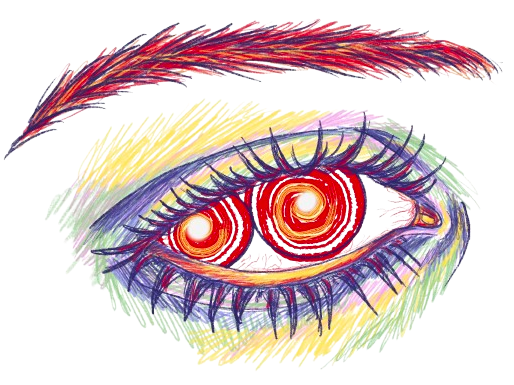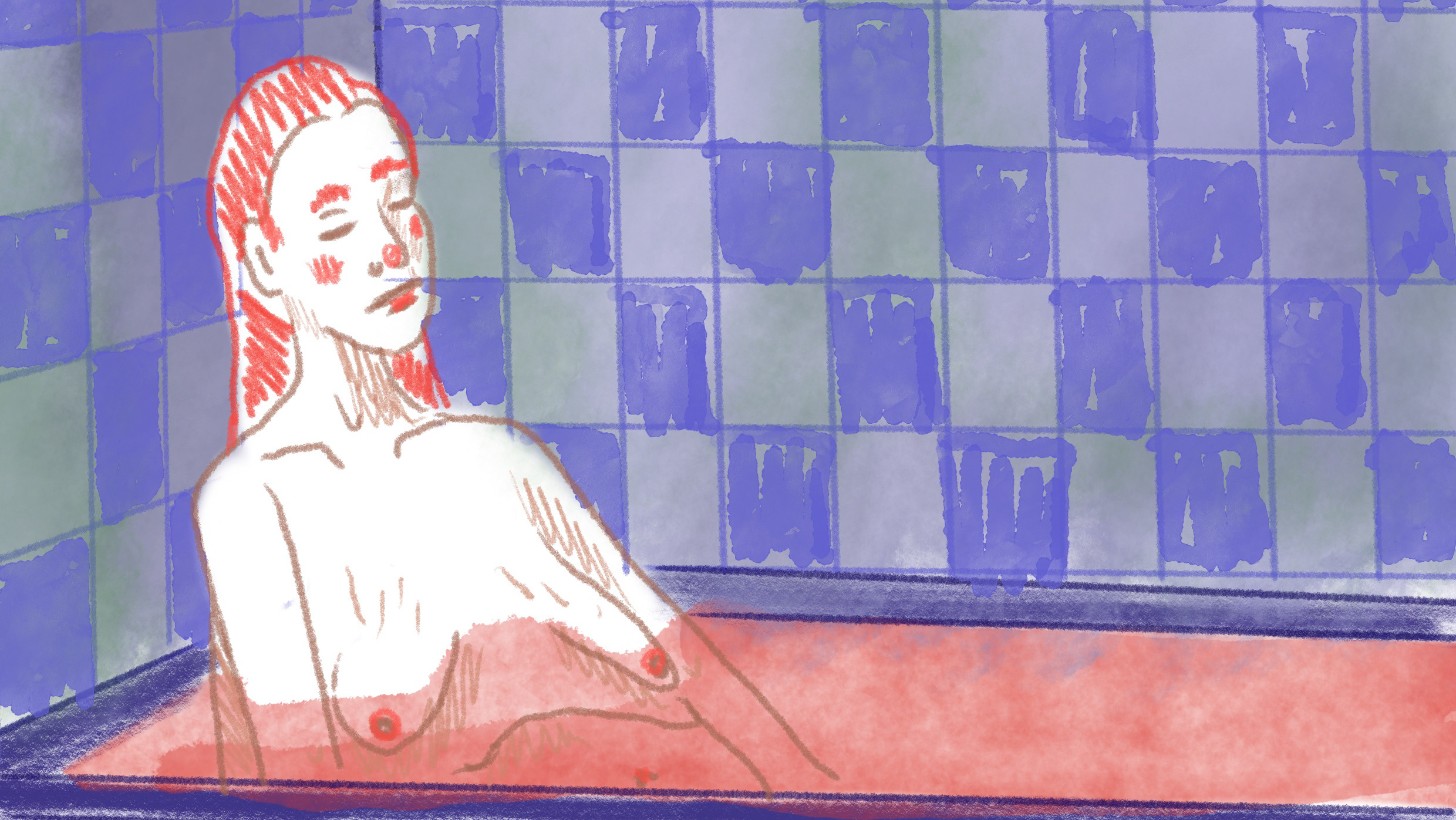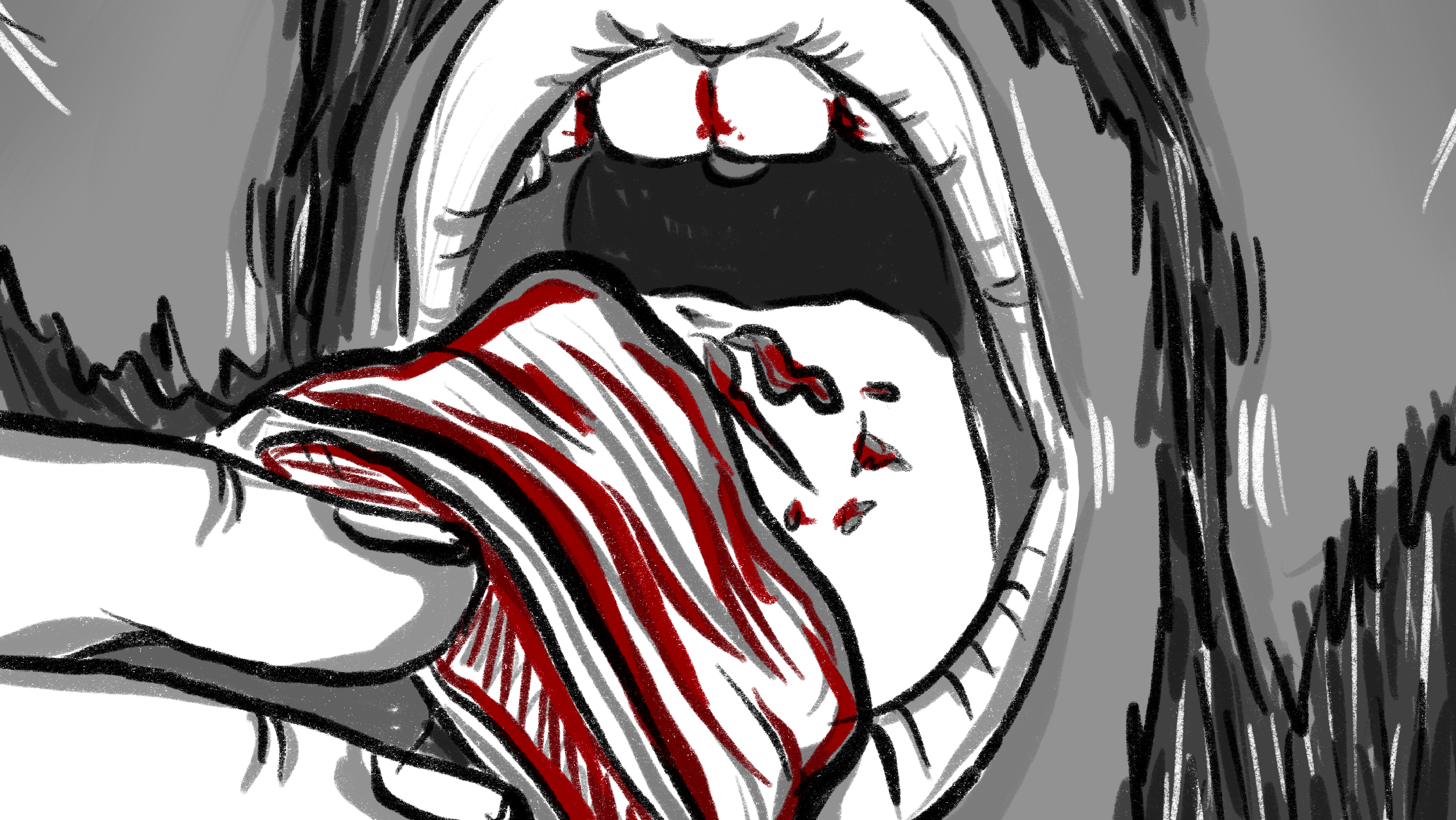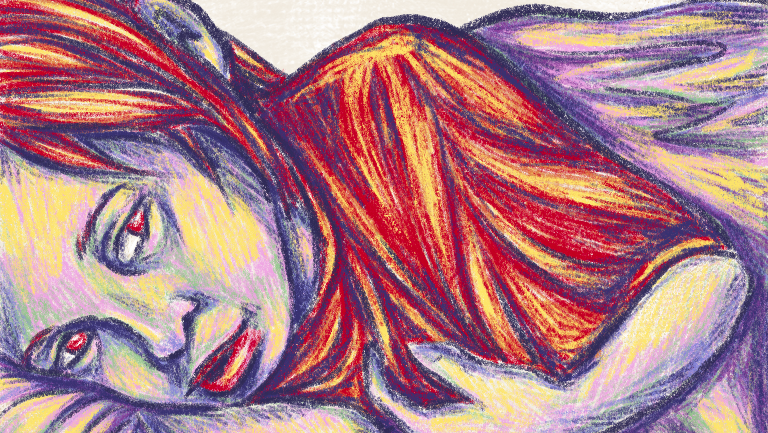The Brief
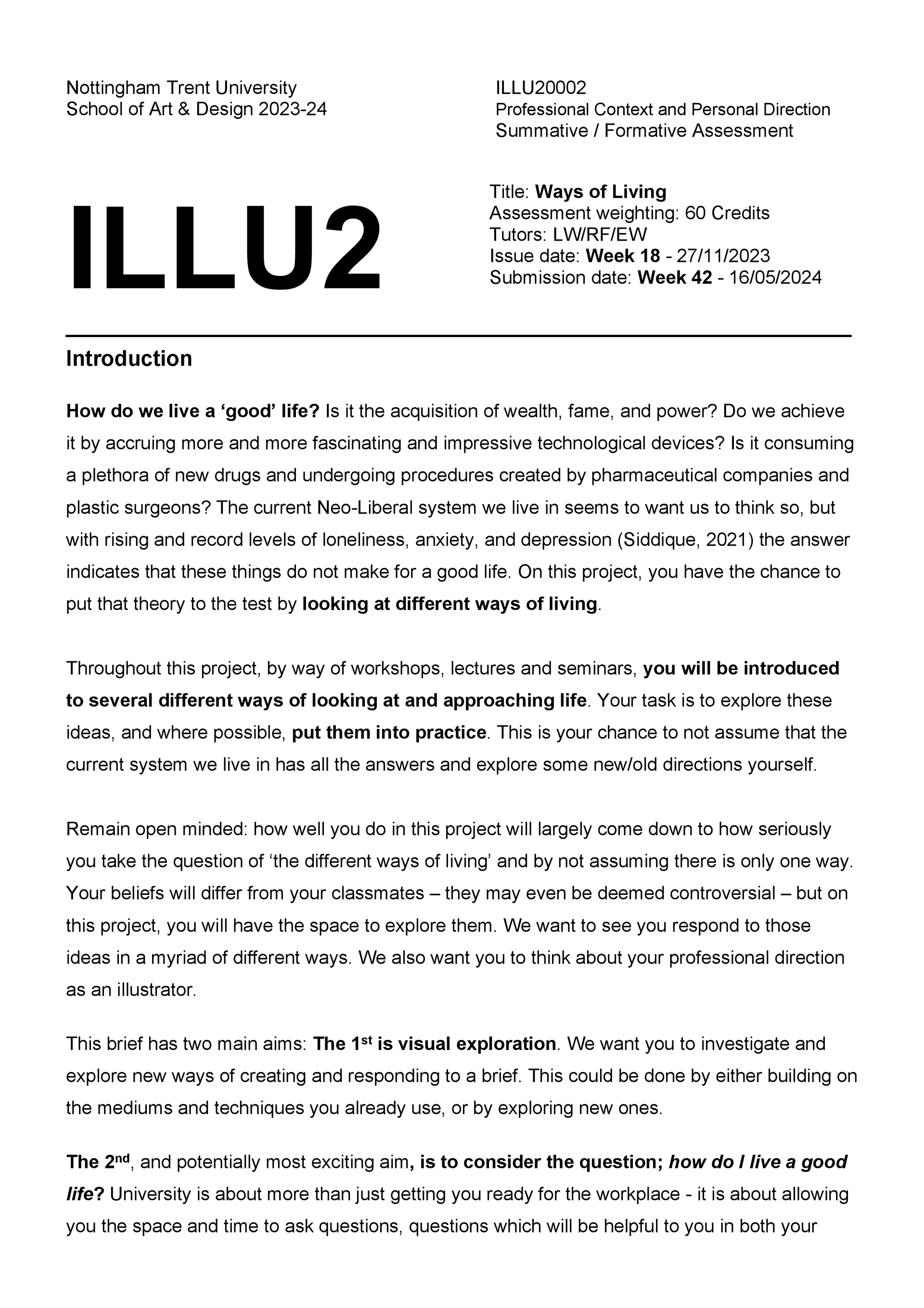
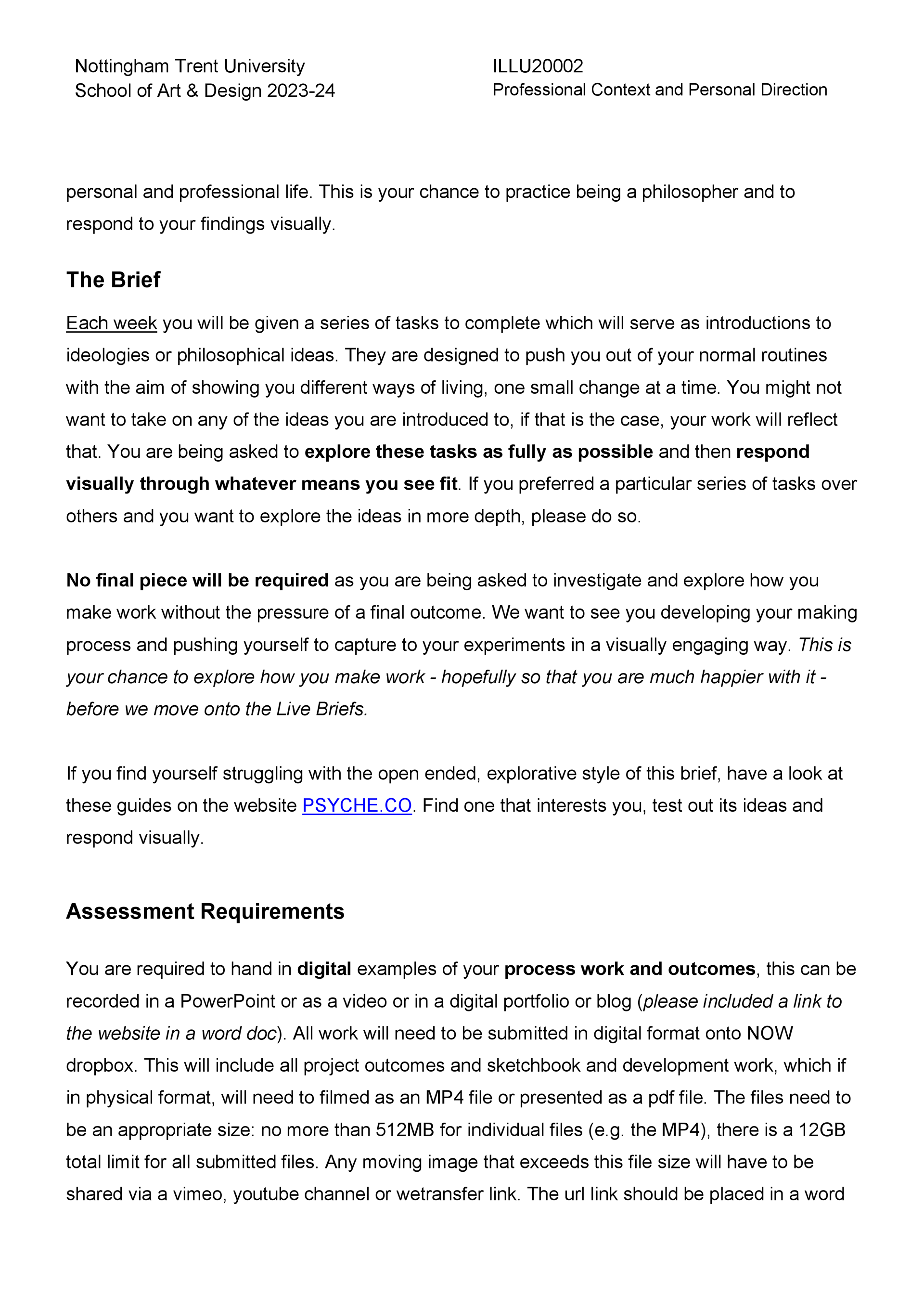
For this project, we're tasked with exploring various lifestyles to stretch our thinking beyond our usual comfort zones. Our aim is to challenge our notions about different aspects of life and broaden our perspectives. By stepping into unfamiliar territory, we hope to gain fresh insights and appreciation for the diversity of human experiences.
Album Covers
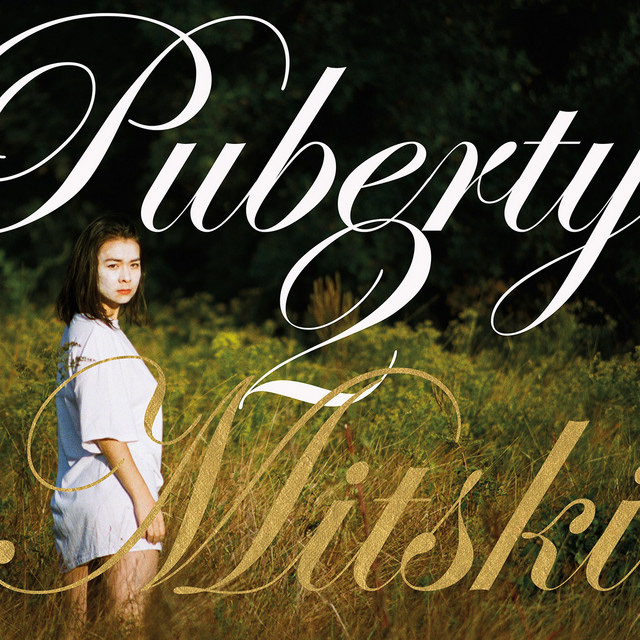
Mitski- Puberty 2 (Album)
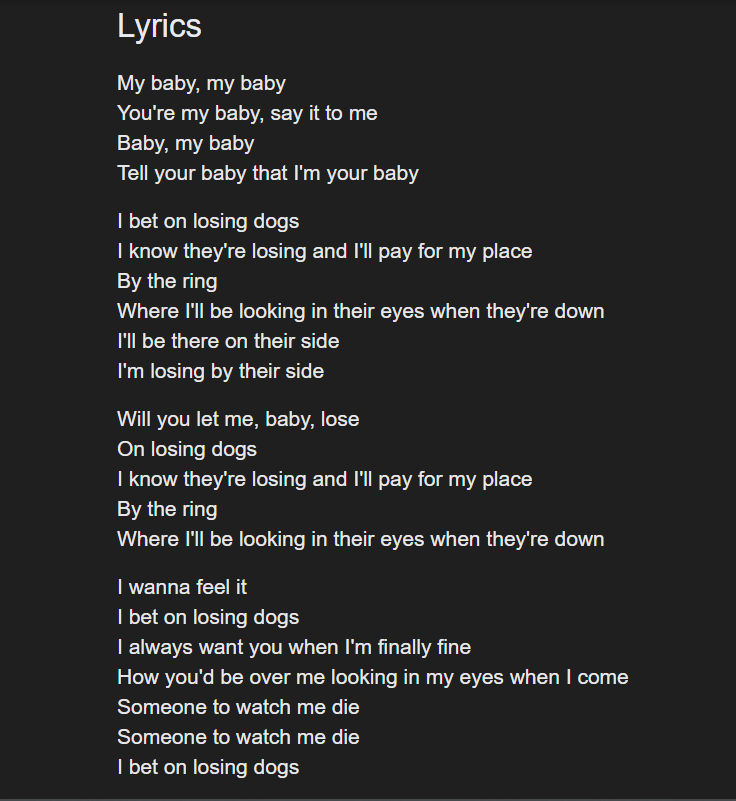
Song Name- I Bet On Losing Dogs
For the initial task, we were prompted to design an album or song cover for a piece of music of our choosing. Despite feeling a bit reserved about sharing my musical preferences in class, I decided to leave early and tackle the assignment on my own. My taste in music tends to lean towards the slow and repetitive, often reminiscent of a lullaby. Artists like Mitski resonate with me, particularly her album "Puberty 2". Among its tracks, "I Bet On Losing Dogs" stands out as a personal favorite.
It really bonds with me because it speaks to a big fear I have in my own life. I tend to be drawn to people who've faced significant challenges—tough childhoods, financial struggles, family issues. It feels like I have a knack for attracting them. But with those challenges often come complexities—like difficult behavior, struggles with control, and battles with mental health.
It's a constant dilemma for me: do I stick by their side and help them through it all, or do I prioritize my own peace? But how can I find peace when they're suffering? Is it better to shoulder their burdens alongside them, even if it means both of us might end up losing? At least we'd be facing it together.
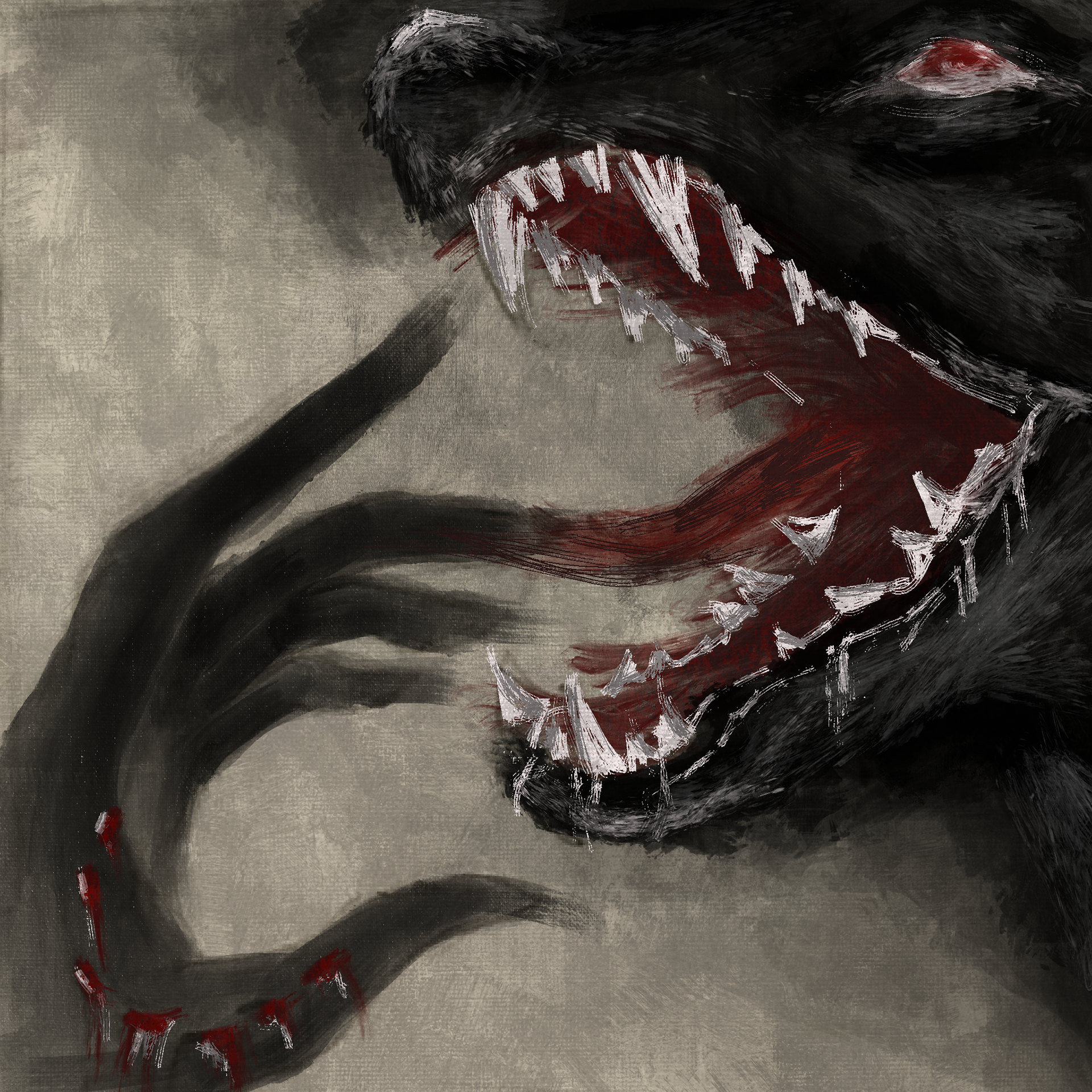
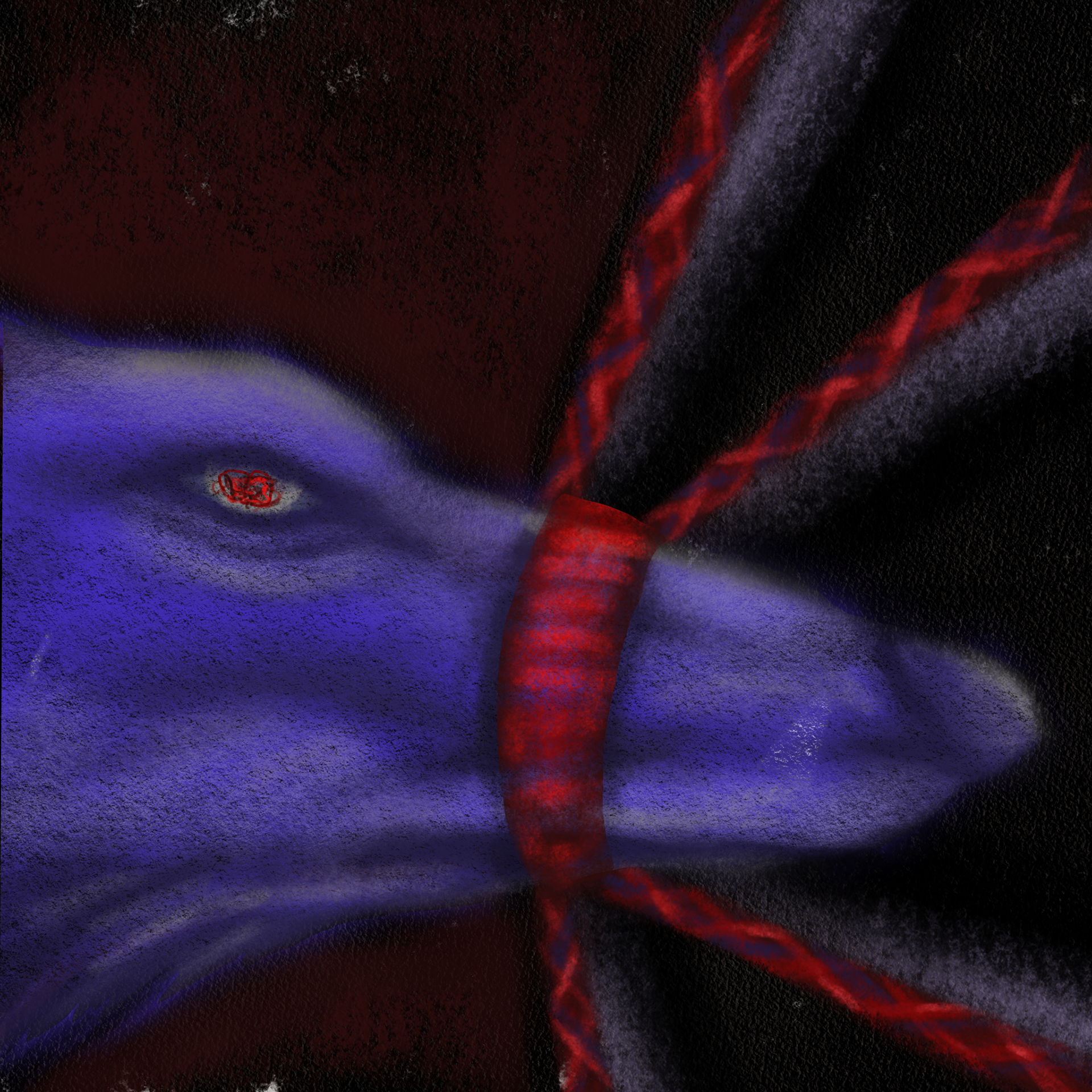
Here are my two versions of the covers. I wanted them to look ominous and almost cruel. They are cruel in different ways however. The first one, the dog looks rabid, having bitten the approaching hand. This is me. I'm the hand. I tried to help the dog. I got bit.
But that's my version. What about the dog's?
In the second version, the focus is on the dog. It's depicted as chained up and appears frightened. Wouldn't you feel scared if an approaching hand was coming towards you while you were chained up? Wouldn't you also instinctively lash out and bite the hand in self-defense?
I think it's okay to be bitten once in a while, if it offers some satisfaction to the one biting.
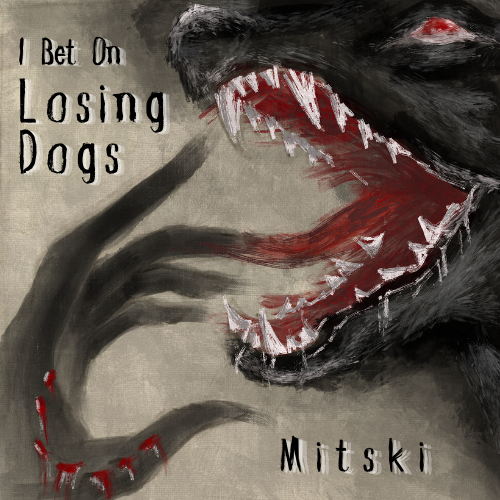
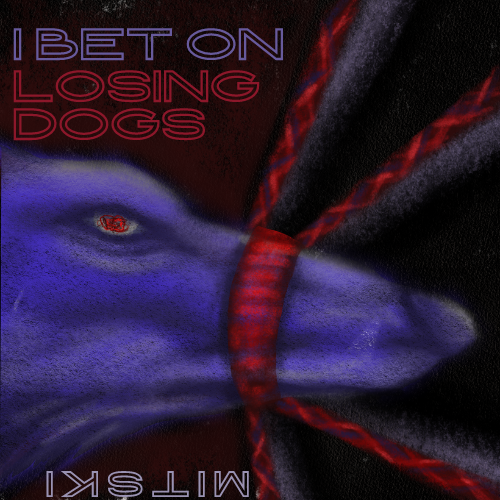
Here are the covers with the song title and artist's name included. It's evident that I'm still learning when it comes to handling text.
I'm a huge fan of canine poetry. It's raw and loving simultaneously, and I think my appreciation for it started a few years ago when I watched Wes Anderson's "Isle of Dogs." Even now, it remains my absolute favorite Wes Anderson film, alongside "Fantastic Mr. Fox." The protagonist, Chief, is exceptionally well-written and serves as a powerful representation for individuals grappling with trauma, neglect and anger issues. This movie has left a profound impact on me, making me a kinder and more patient person.
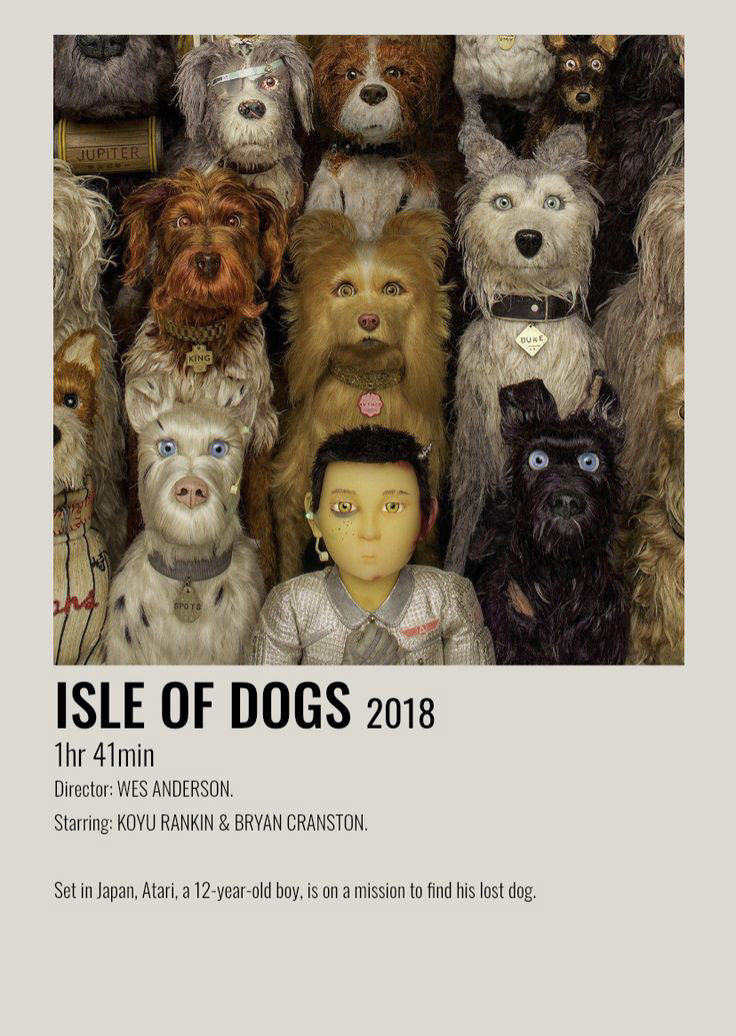
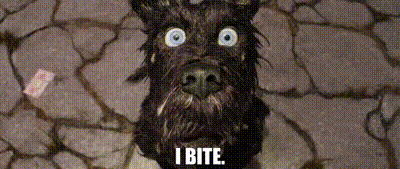
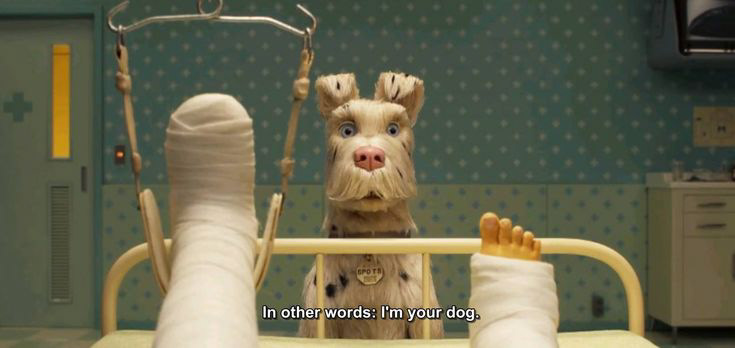
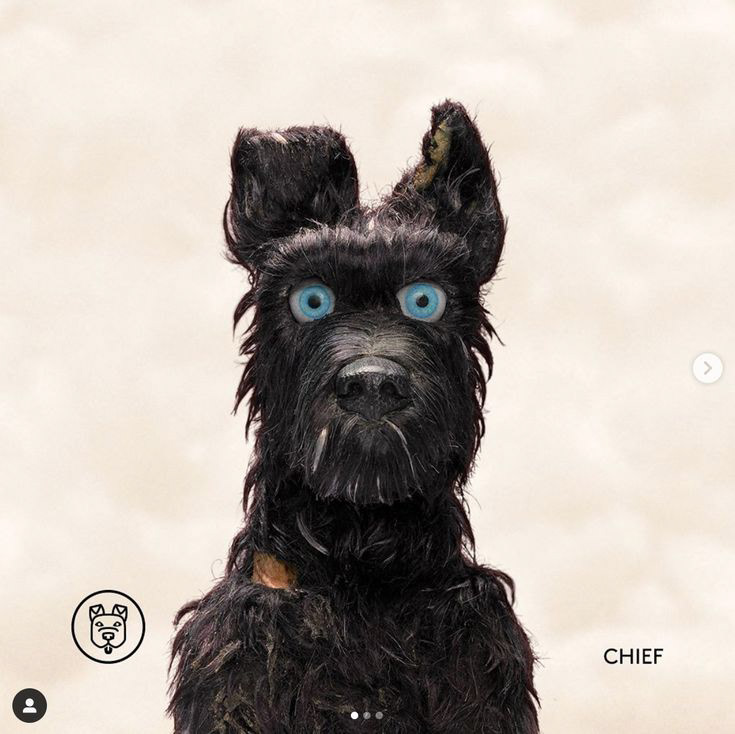
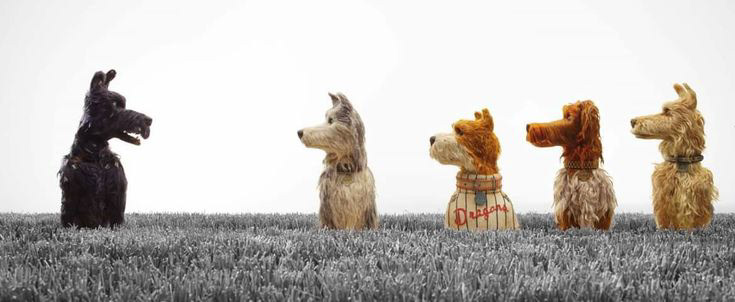
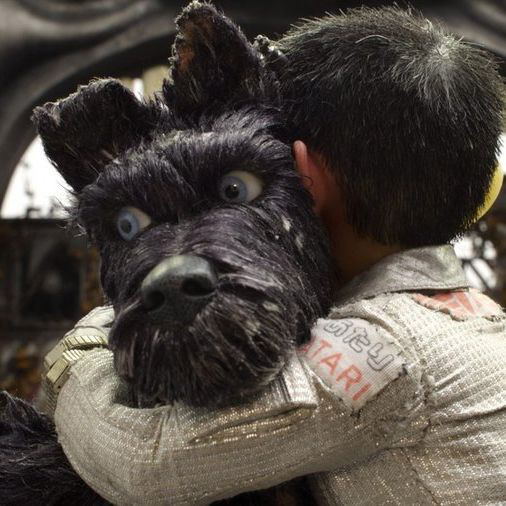
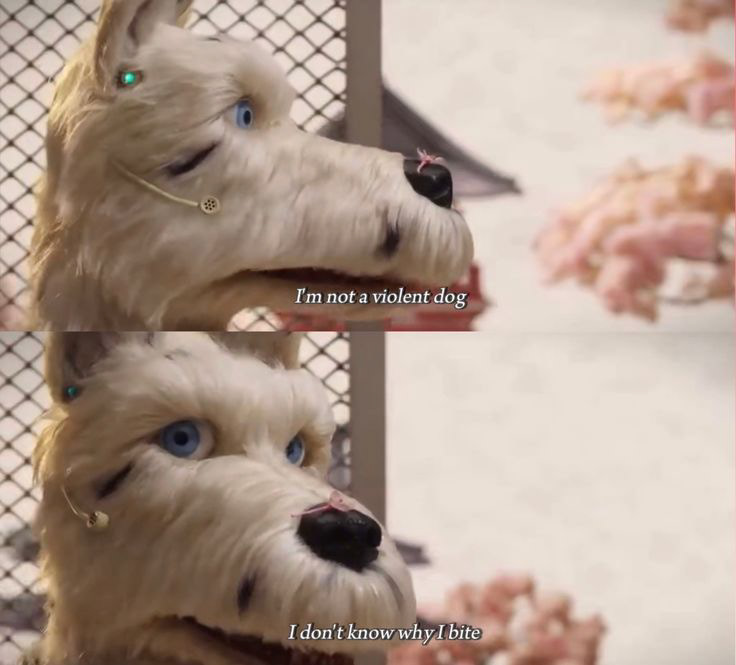
Mono Printing Workshop
The mono printing workshop was quite enjoyable. We began by crafting paper squares and layering thicker papers onto them. Afterward, we applied water-based paint onto a board and arranged the papers on top, giving us a canvas for creativity. I started with simple patterns, aiming for textured backgrounds. Utilizing the backs of pens, brushes, and even a spare comb, I experimented with various designs. Some of the backgrounds showed promise for future projects.
Transitioning to freehand sketches, I found the process a bit messy and time-consuming. While the mini illustrations I attempted were decent, they didn't stand out much. Perhaps I approached it incorrectly or simply didn't grasp the appeal of this art form. However, I was drawn to the background and pattern work, which provided an excellent foundation for layering other sketches. I intend to explore this aspect further in my future work.

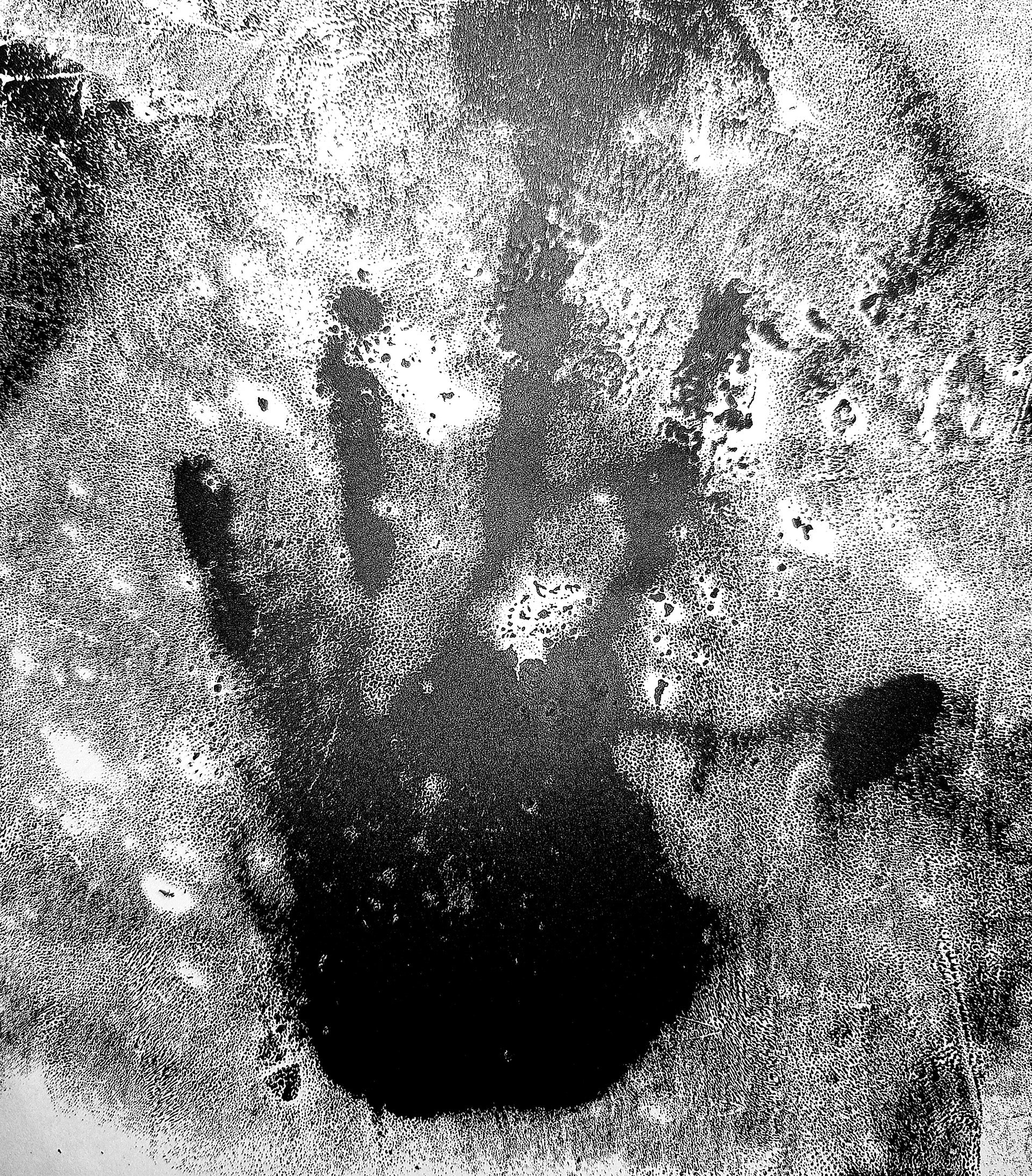
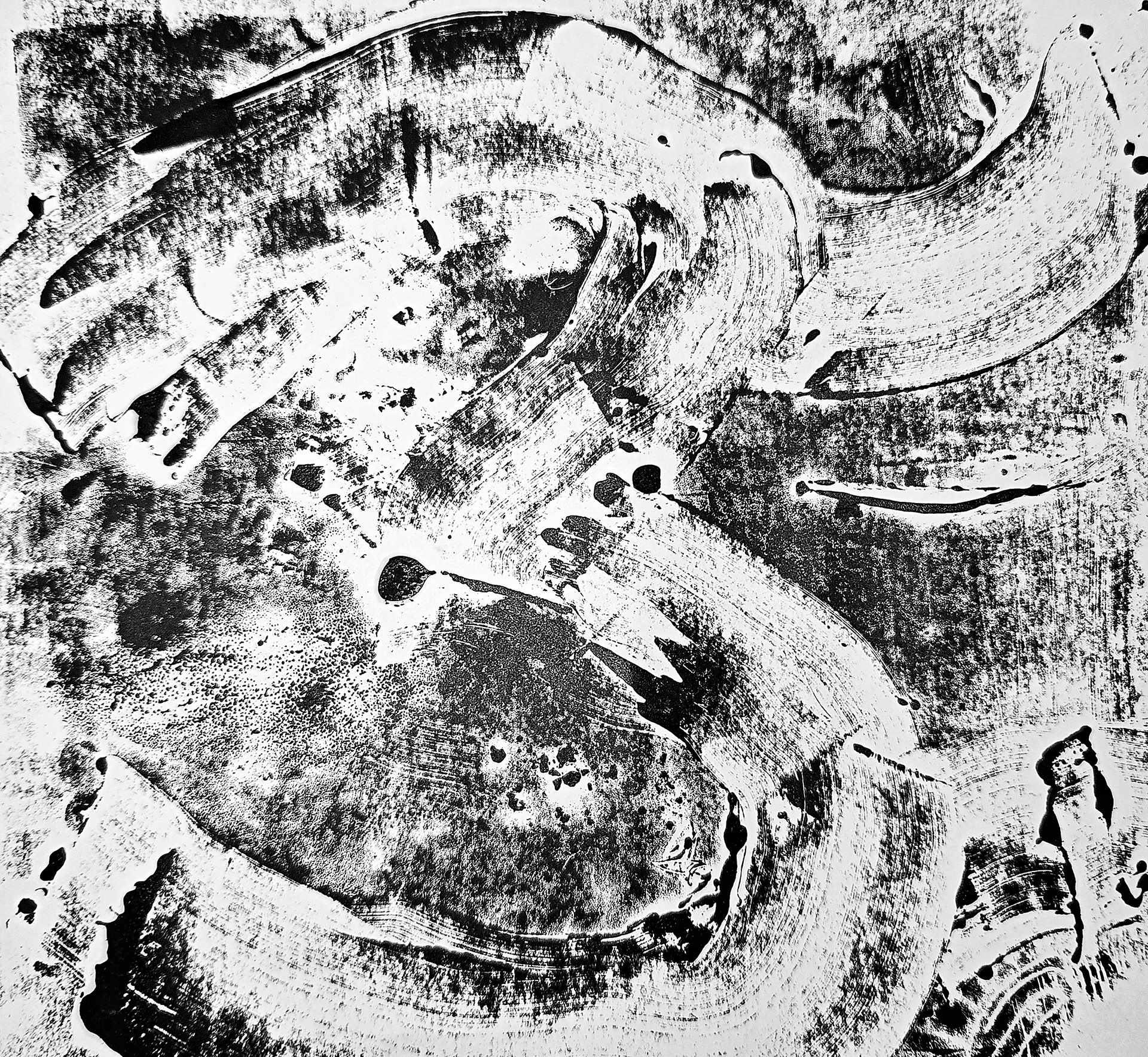
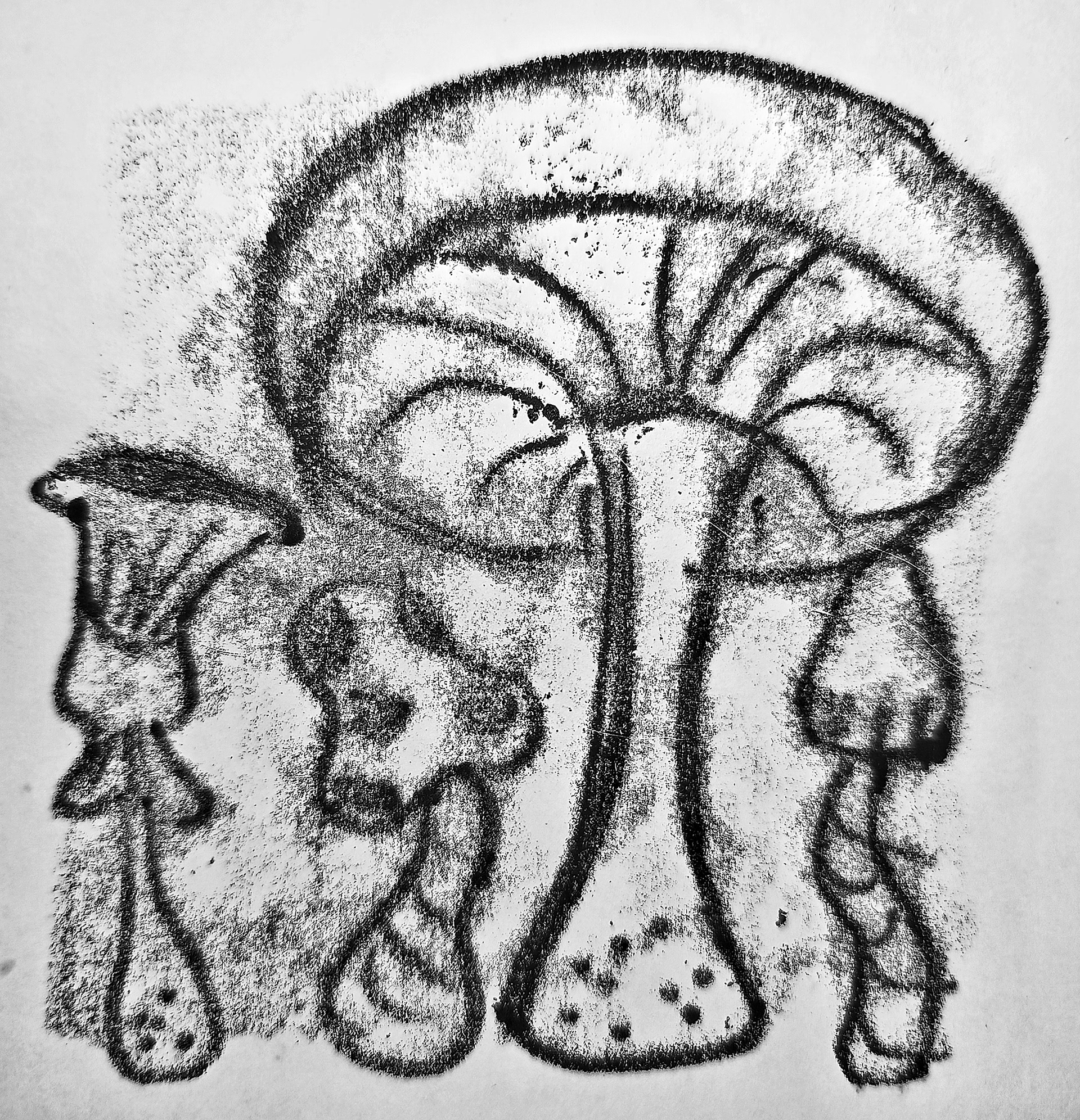
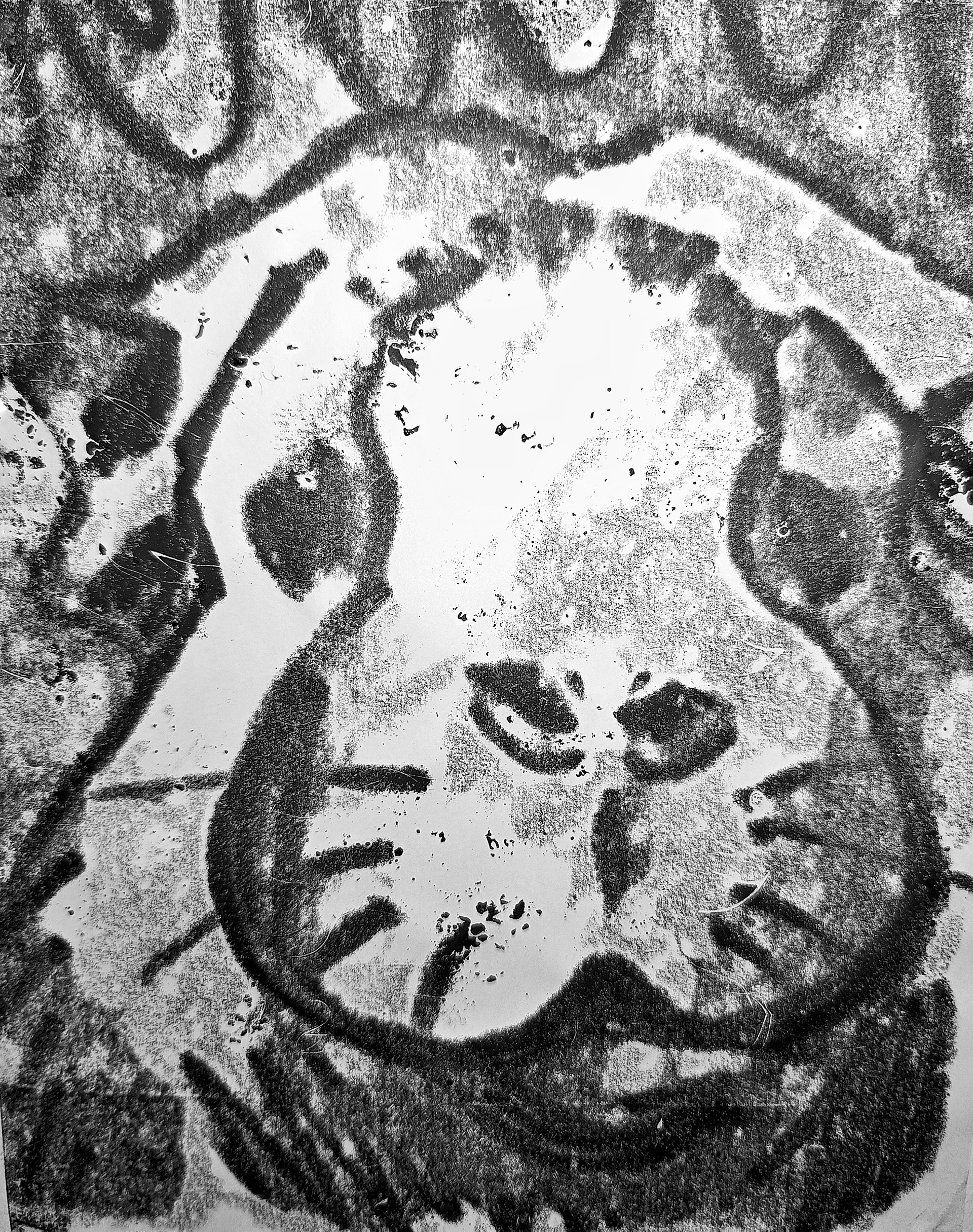
My least favourite piece
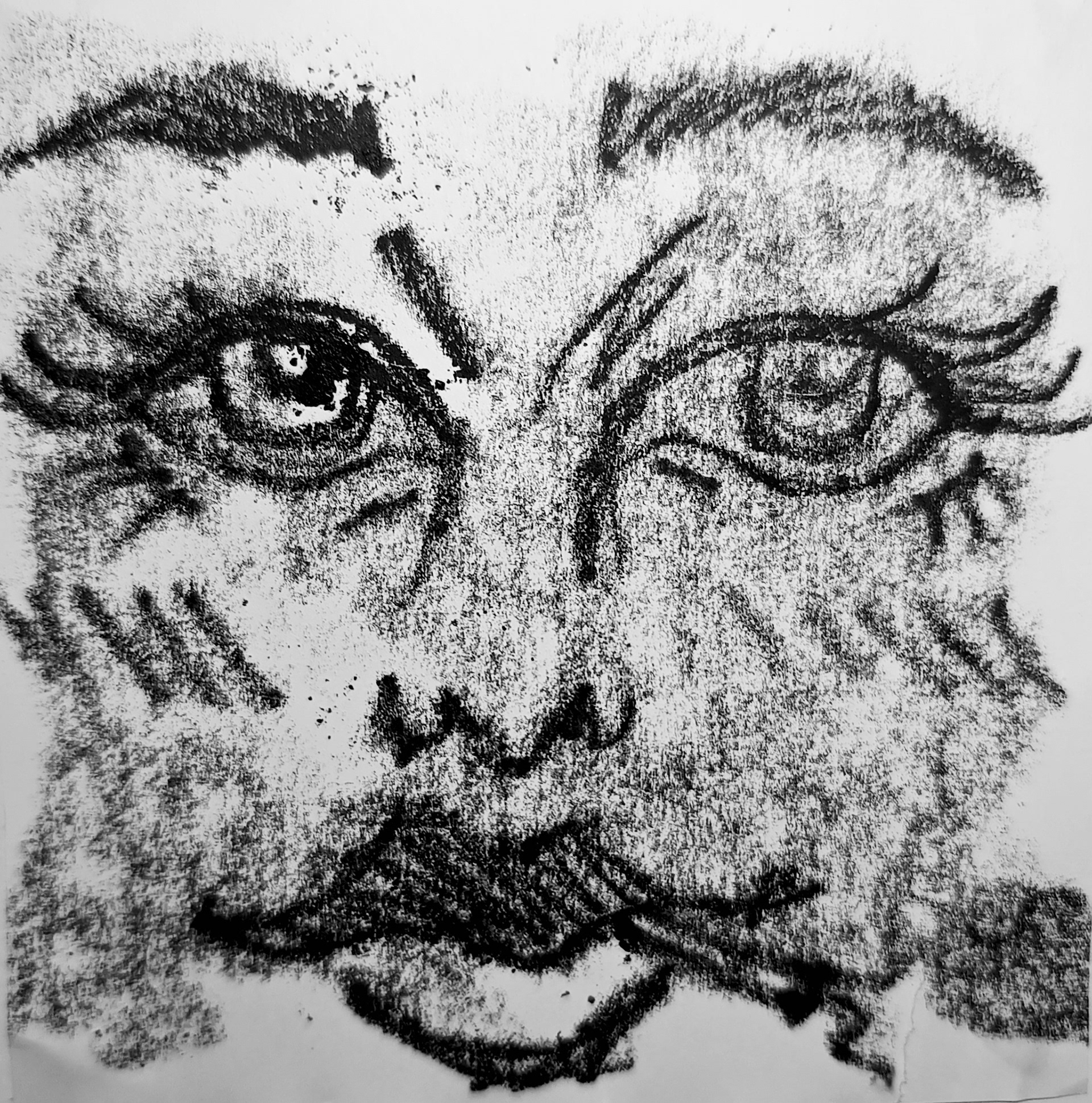

My favourite piece
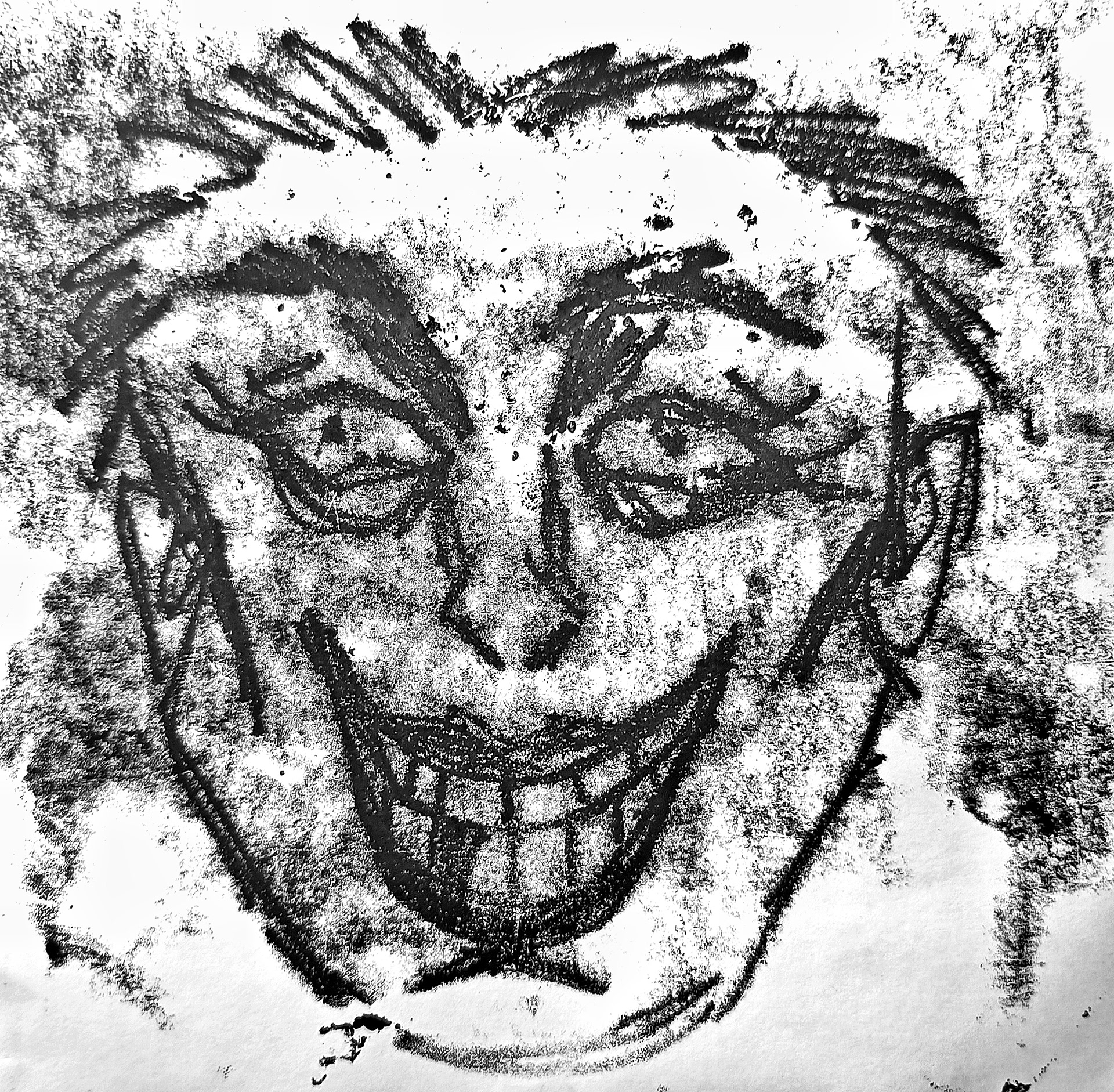
Collage Work
In class, we were tasked with creating picture collages based on a specific theme. Wanting to use a bit of humor, I decided to play a prank on my friend Urvi, who has a reputation for being a playful bully. I gathered some of the most hilariously unflattering pictures of my other friends and edited them to create a murder mystery scenario, with Urvi depicted as the culprit. When I revealed the collage to her later that day, she wasn't too pleased, especially since she was not in uni that day.
After that, I decided to get a bit more serious and created a simple collage featuring some of the food I had enjoyed throughout the month.
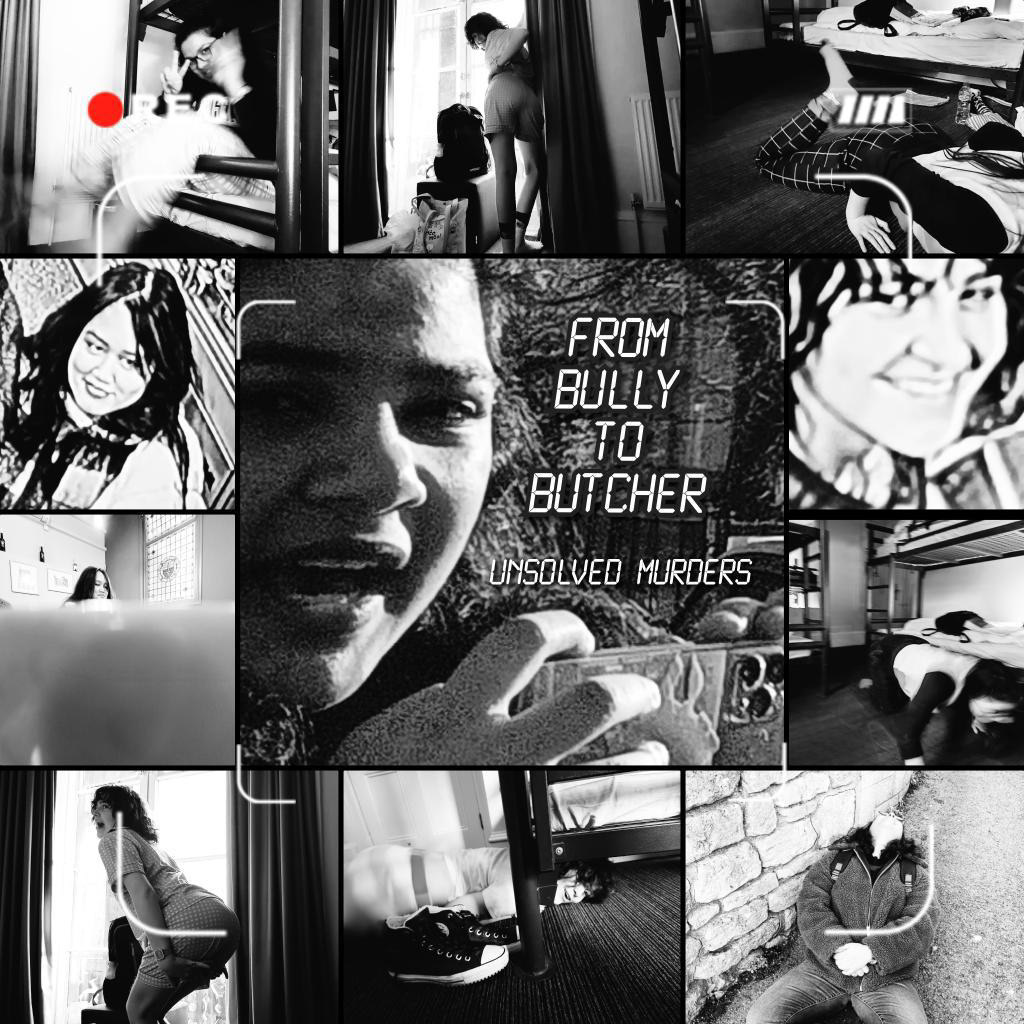
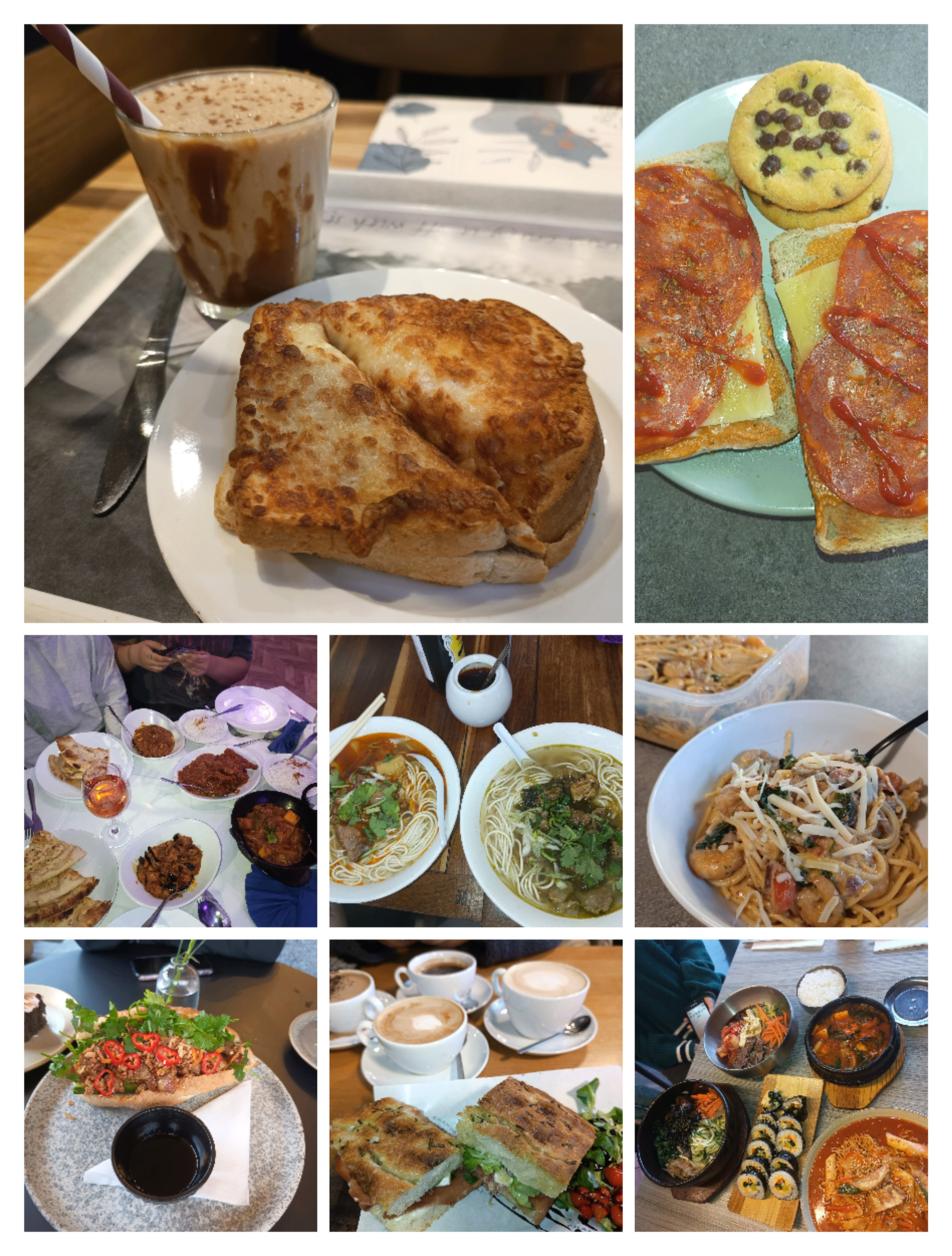
More Album Covers
I decided to revisit designing album covers after realizing my initial attempts were too illustrative for the abstract theme. Abstract art isn't my forte; I tend to overcrowd my images with too many subjects. So, I wanted to give it another shot. This time, I selected another favorite song, "In a Week" by Hozier. His music always aligns with my slightly mellow and lullaby-like music genre, and this song is no exception.
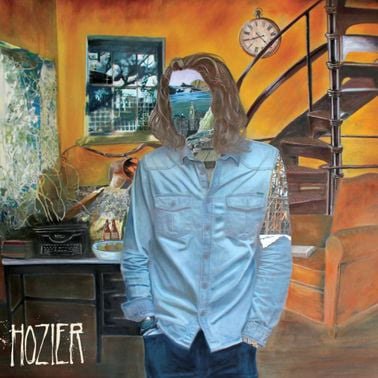
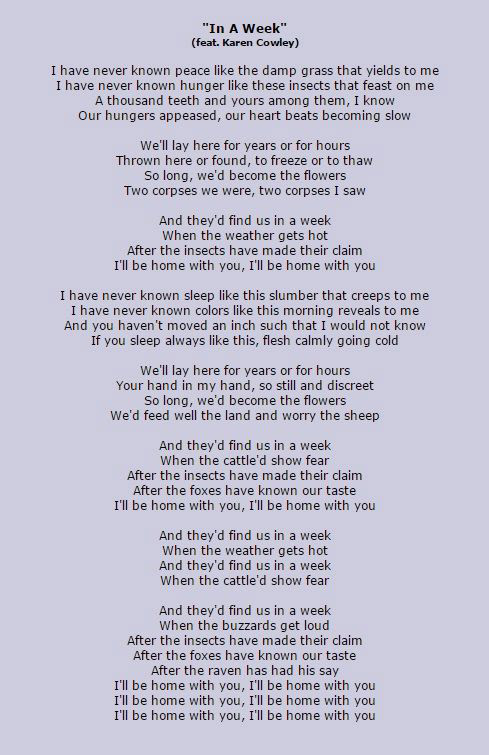
"In a Week" is essentially a love song, although some of the people I've introduced to it don't think so. They argue that the song is potentially jarring and alarming, and in a way, I agree. The song narrates the journey of the singer and his lover after being buried together. Their bodies decompose, and nature takes its course as animals in the woods start consuming them, and insects begin to pile up. Slowly, their bodies transition into the earth and flowers. However, none of that matters because the two of them are there together.
I understand why some people find the song strange and horrifying, but I still consider it one of the most romantic songs out there. Which is unusual for me, since I don't usually think much about what happens to me after I die. Why would I? I'm dead, so it doesn't matter. I don't care about some "legacy" I'm leaving behind. Frankly, it doesn't matter to me if I'm remembered or not. Still, somehow, this song captivates me. Why is being buried and going through stages of death with someone you love so romantic? Why does this song make me want to lie down on the soil and turn into flowers? I will never know. I guess I'm a romantic at heart.
Perhaps it's because, even though I project myself as being laid-back and shallow, I'm incredibly emotional and sensitive. I often try not to be the sappy and touchy-feely person that I am, even while being in a relationship. But all those years of pretending are catching up to me as I write this. I'll try my best to get out of my "too cool for that" phase and just accept that I am who I am.
So, anyone willing to die with me and become one with nature?
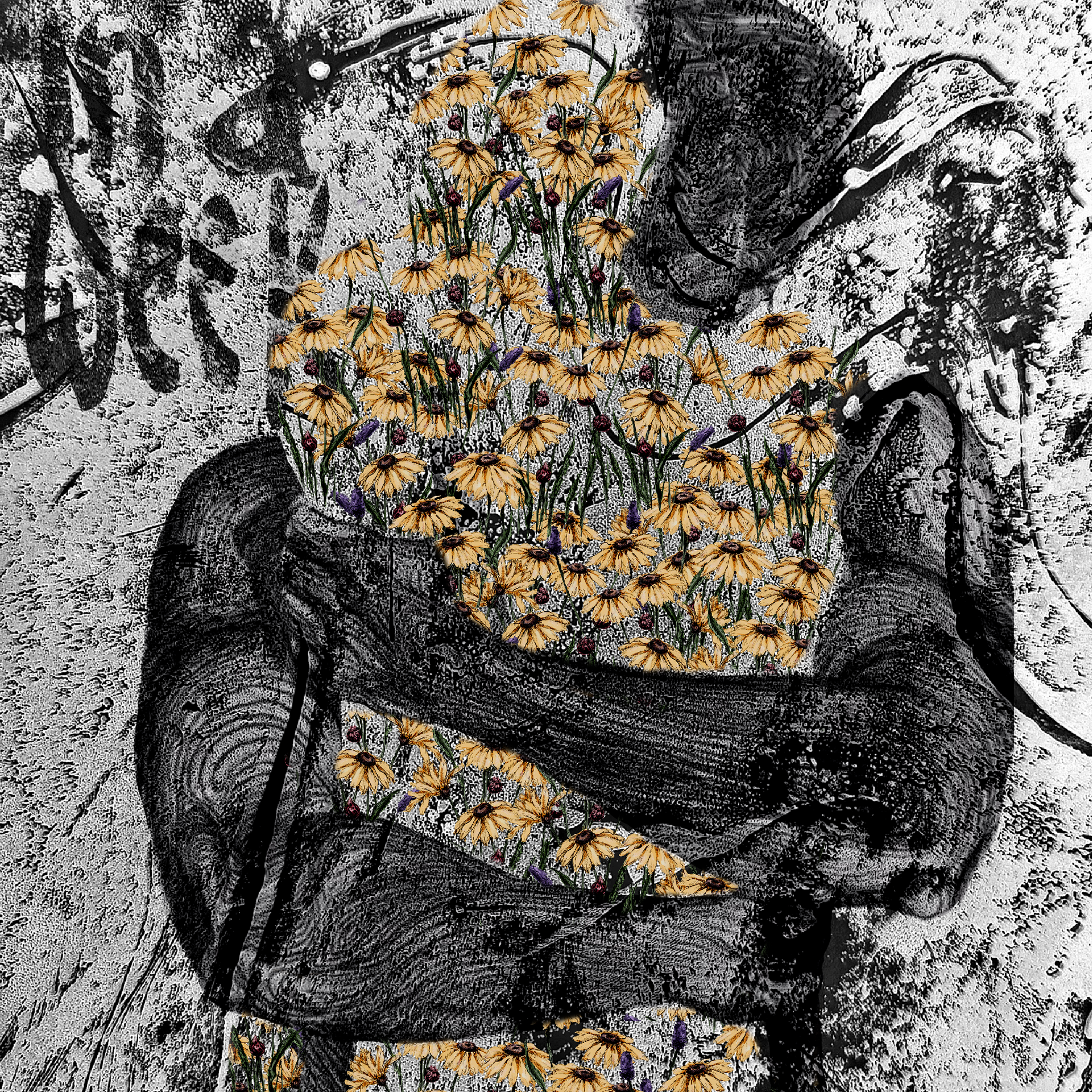
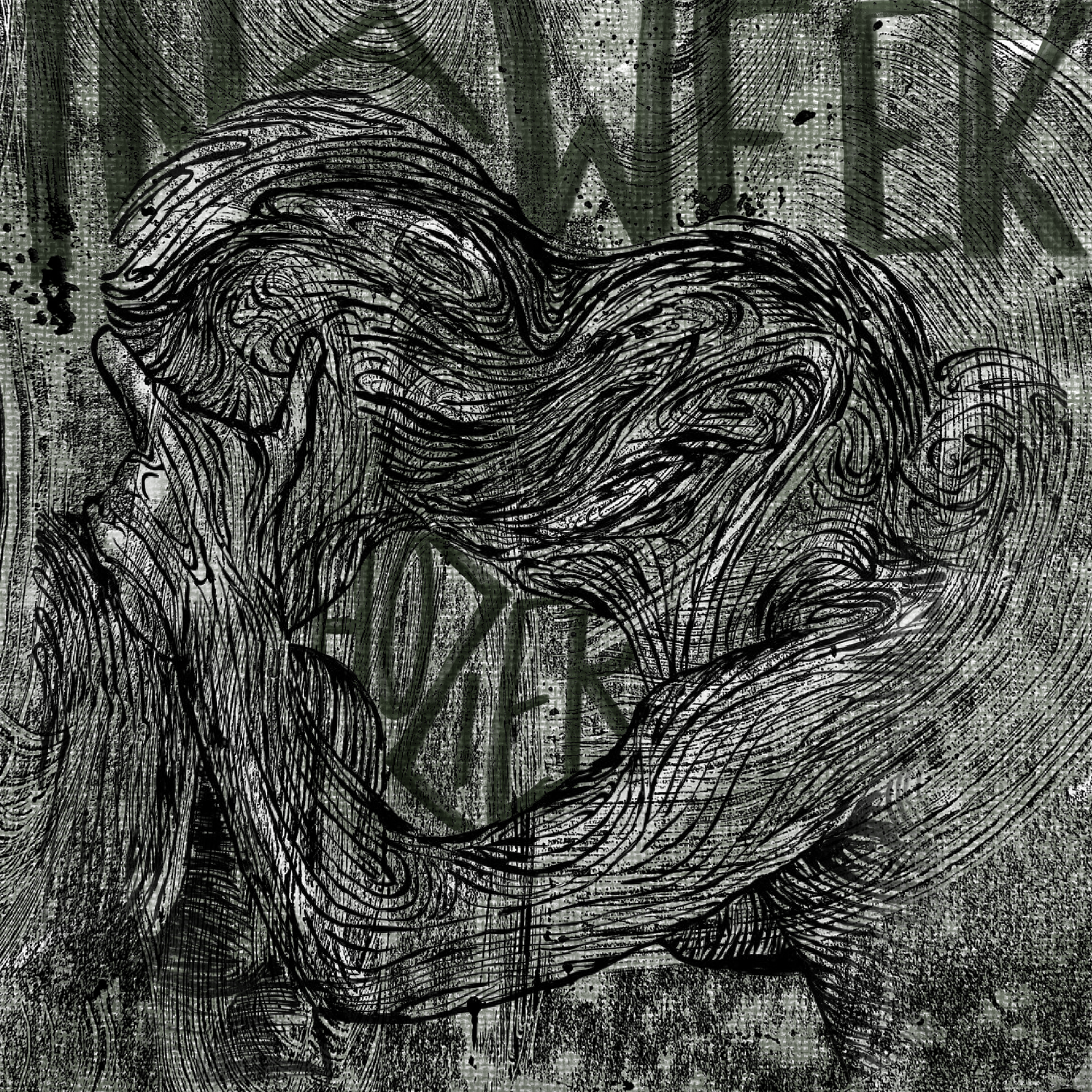
I actually did repurpose some of my work from the mono printing session. I used the two patterned sheets as background and texture for my two album covers, then digitally added figures on top of them. I attempted to texture the subjects using wood imprints, hinting to the main theme of the song.
This time, I aimed for a simpler and more abstract approach, and I'm so happy with the results. The haunting subjects complement the monoprints and suit the mood of the song perfectly.
Once again, I'm grappling with the font choice and text placement. I aimed for the text to be subtle, seamlessly blending into the background, but I'm not sure if it achieves the desired effect. Perhaps I'll revisit it later to refine it further.
Skepticism
I began this task feeling a surge of anger. Here's the story: I missed class that day due to horrible cramps and, without knowing the task at hand, I messaged my friends to explain my absence. However, instead of their usual supportive response, they began questioning my illness and my reasons for not attending. This unexpected interrogation left me feeling alarmed and anxious for the remainder of the day. Little did I know, it was an elaborate and nearly harmless prank that continued until the next day at uni, when they finally revealed the truth. It was then that I realized something: I don't enjoy skepticism. Why question things when they are as they are? But perhaps my initial reaction was influenced by starting off on the wrong foot.
As I reflected further, I realized that I am indeed a skeptic, but my focus lies on slightly different topics. I don't dwell on whether a chair is a chair because, well, what else could it be? However, if someone were to combine a table and a chair together, creating something visually ambiguous, I might pause and question, "Hey, is that a table or a chair?" It's not that I doubt what I've known for so long or what is commonly accepted; rather, I draw the line at being skeptical about trivial matters because society tends to dismiss such inquiries as "common knowledge."
Maybe this reluctance stems from the fact that my generation is so deeply immersed in the internet, while older generations may be more skeptical about it since it wasn't as prevalent during their time. What's common knowledge to us may not be so to them. But consider this: if we were to start calling a chair a table and a table a chair, and then pass on this information to future generations, they might grow up questioning what these objects are truly called. They would be told, "Those are the new terms, but it was actually the other way around before your time."
My point is, we lack the ability to definitively prove the existence or non-existence of things. I wouldn't even know where to begin with such proof. Now, I find myself questioning the very concept of proof. It could be an object, a statement, an argument, or even a scientific experiment. However, our capacity for proof is inherently limited because we base our thoughts and beliefs on the knowledge that is communicated to us. It's all passed down through word of mouth. If communication were completely nonexistent, none of us would be skeptics. To communicate is to think, and to think is to engage in skepticism. Our thoughts are intricately linked to various elements such as objects, beliefs, policies, and emotions, forming visual connections within our minds.
I'm unsure about anything being certain or true. If I were one of those kids who were told that a chair is a table and a table is a chair, I'd unquestioningly believe it until someone corrected me. This same principle applies to larger topics like religion or personal identity. For instance, someone raised in a religious family is typically devout until encountering someone who introduces doubt. Similarly, if you've always perceived yourself in a certain light and someone challenges that perception, you'd inevitably begin questioning your true identity. It all boils down to perspective and what we choose, or don't choose, to believe in. It often involves taking sides, and there are countless perspectives to consider.
Stoicism
I'll begin by admitting that my understanding of stoicism has always been somewhat different. I used to think that being stoic meant to be idle or brooding, but I've come to learn that it actually refers to living in the present moment. Other interpretations suggest it's about maintaining calmness and emotional restraint, or exercising self-control. The social connotations of the word often carry a negative, dull, and stern perception. I've never encountered a word with such a multitude of meanings before.
So am I stoic? Am I simultaneously dull and brooding, calm and controlled? I feel like I don't quite fit into either of those descriptions.
I don't particularly dwell on either the past or the future, though I find myself reflecting more on the past than the future. I often ponder old regrets or specific incidents and contemplate how things might have turned out differently if they hadn't occurred. Regarding the future, my thoughts typically revolve around short-term plans for the week or practical matters like what to cook for dinner. I tend to avoid thinking too far ahead. When I was younger, I was plagued by an inescapable notion that I wouldn't live past 18. Fortunately, I surpassed that milestone, but growing up with that mindset has permanently altered my perspective on the future.
I struggle with completing tasks. It's not due to laziness or a lack of willingness—I'm constantly thinking about what needs to be done. However, it feels like there's a disconnect between my mind and body. It's a repetitive cycle of me lying in bed, mentally urging myself to get up and start working, but I just can't seem to do it. This is why I procrastinate so much; most days, it doesn't feel like a choice. Additionally, when I do manage to start a task at the last possible minute, I often end up finishing it after several nights of no sleep. Perhaps I'm living a little too much in the present.
The box breathing technique doesn't seem to have any effect on me. I've tried it a few times but always end up stopping. Even when practicing with therapists in the past, I've found it difficult to sit still. My thoughts don't wander; instead, I become hyper-aware of my lack of stillness. It's a constant internal dialogue of "Sit still, sit still. You're not still enough. You just moved your elbow; now you have to restart. Okay, start breathing, hold it in. Has it been 4 seconds yet? I don't think so. Should I set a timer? Great, you just moved again."
I guess I become overly fixated on how well I'm doing the breathing and if I'm remaining still enough. When you think too much about it, you can't seem to do it right. It's similar to when someone tells you "don't think of an elephant"—now you can't help but think of one. This is one of the reasons why I enjoy art so much. I rarely have to consciously focus on it; somehow, my brain shuts off, and my hands instinctively know what to do while I dissociate from the process entirely. After finishing a piece, I snap back to reality and suddenly realize there's a painting in front of me. I never quite understand how I managed it; it's like I operate on autopilot.
I like taking walks because it allows me to completely dissociate from my surroundings. I'll start walking to reach a destination, and suddenly I'm there, with no memory of the journey or the thoughts that passed through my mind. I suppose I become engrossed in the music I'm listening to, focusing on the lyrics or recalling which show the song is from. This might give the impression that I have no thoughts at all, but in reality, I'm quite a deep thinker—I just struggle to recall what I was thinking. Perhaps I have too many thoughts swirling around simultaneously, making it difficult to retain them all.
I enjoy walking with others because it brings me back to consciousness. I become aware of the path, the people, and the passing cars. However, when I'm alone, I feel like a sleepwalker, moving through the world without fully registering my surroundings.

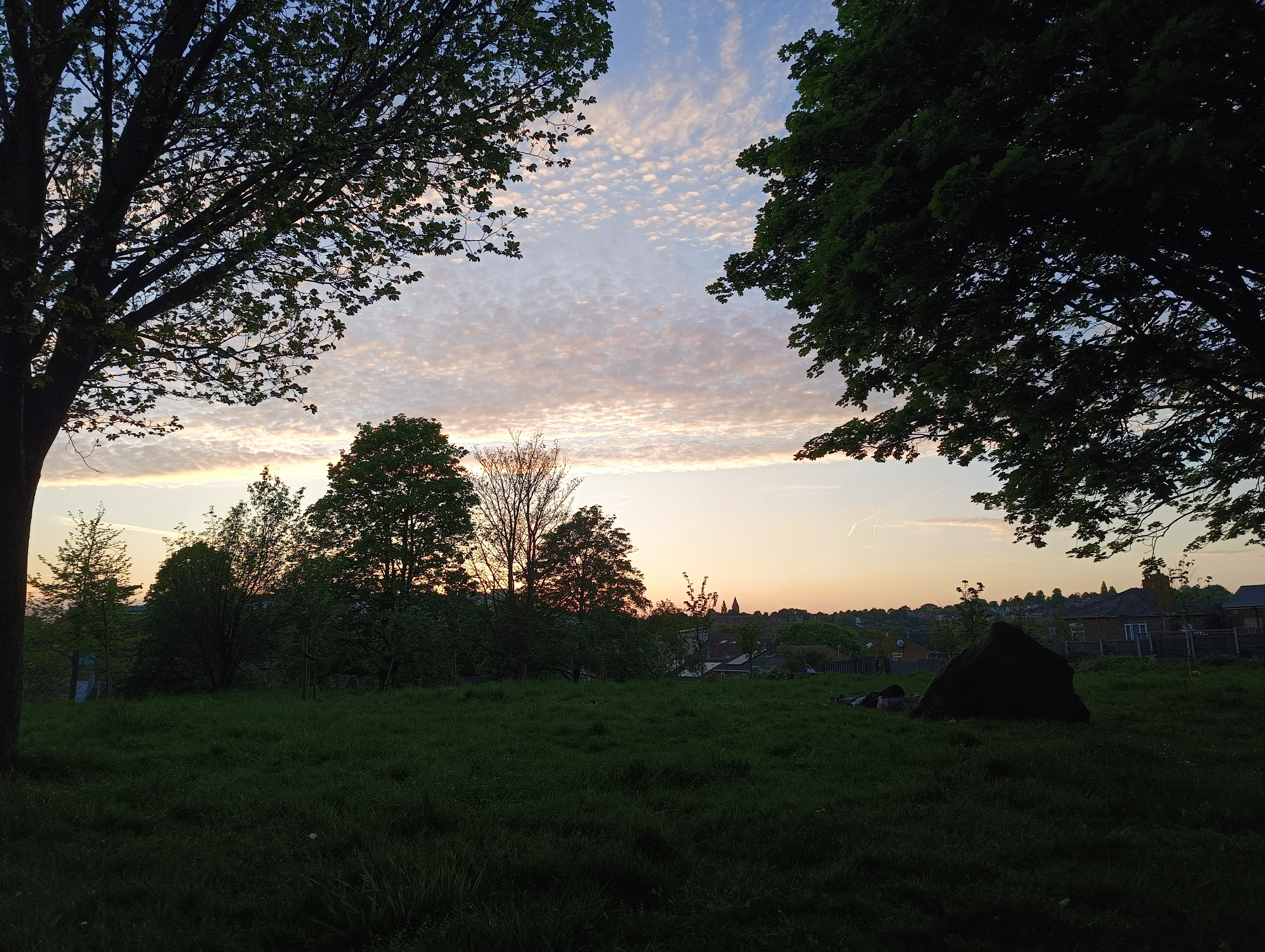
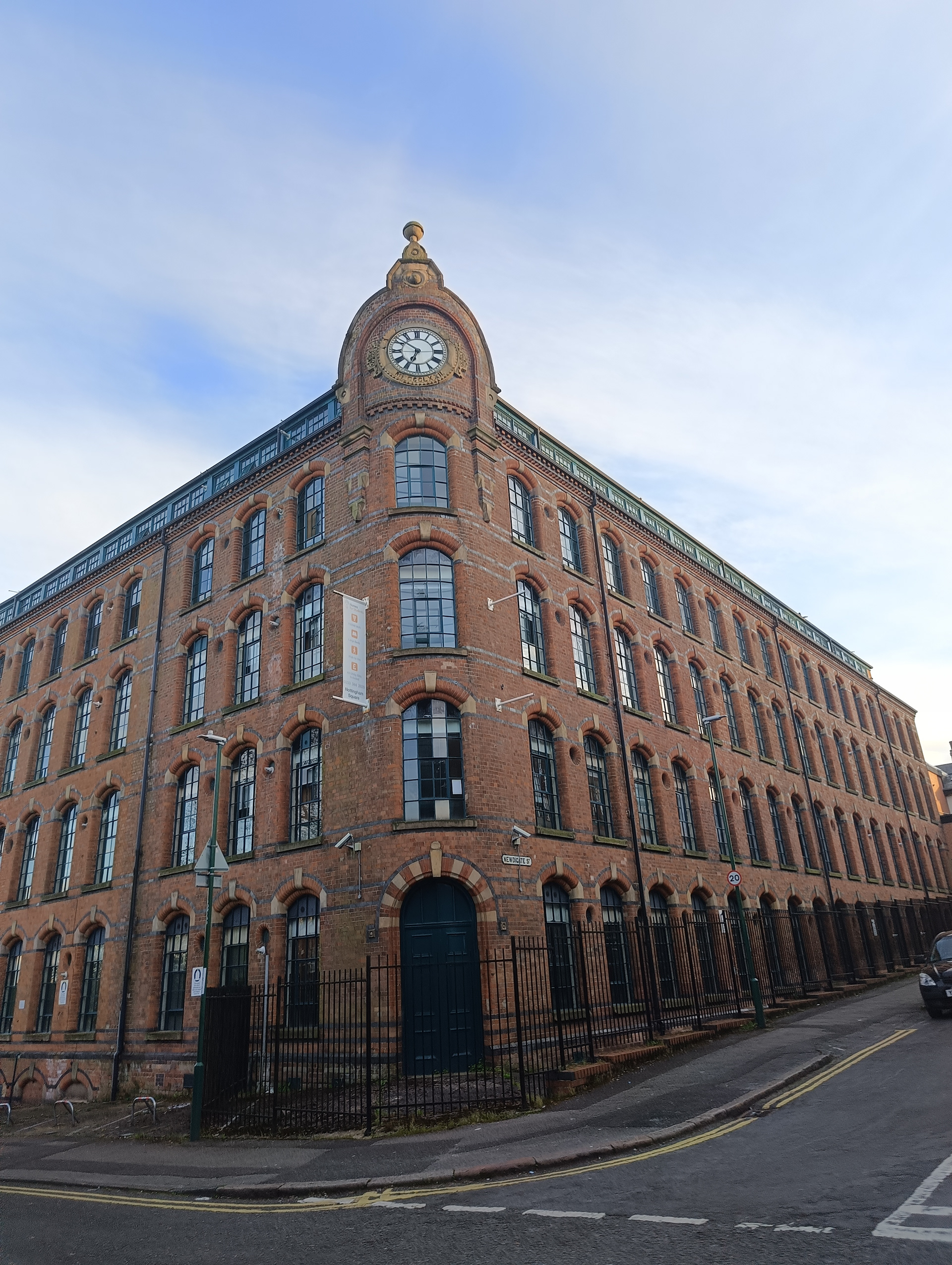
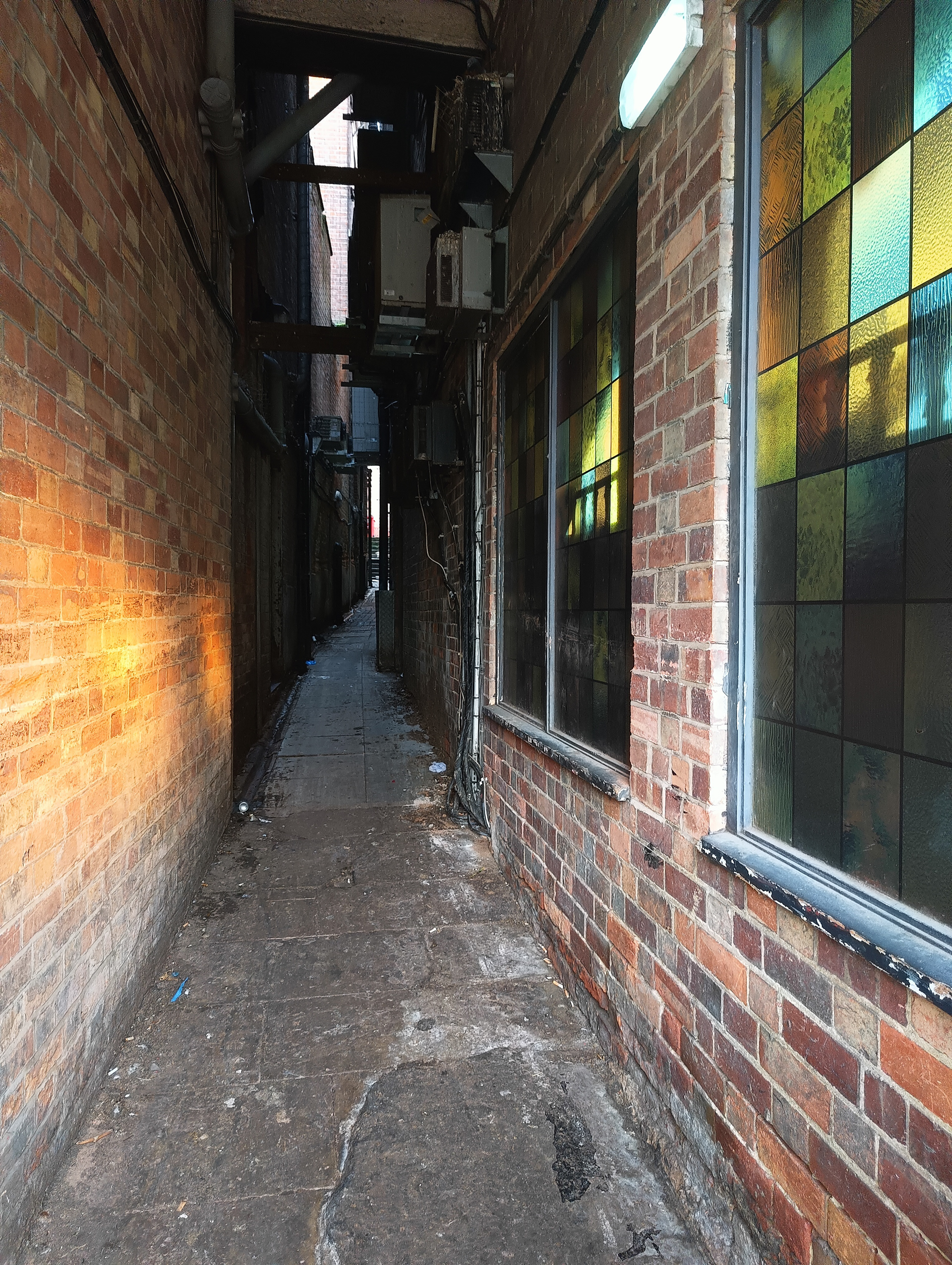

Here are some pictures I took during my walks.
Here's a glimpse into my playlists. I select them based on the time of day and my current mood. In truth, I don't have many different facets to my personality at all.
One of my greatest concerns, both longstanding and ever-present, is my career. It's an inevitable worry for anyone venturing into the field of art. In this realm, you either need to be exceptionally skilled or possess strong networking abilities and project management skills. Regrettably, I don't excel in either of these areas. I struggle to generate original ideas independently, and I'm not adept at networking or effectively completing projects. Given the immense opportunity I've been granted to study art and attend a university in the UK as an international student, I often feel undeserving due to my perceived shortcomings. I lack a fallback plan, and I don't have a place I particularly feel attached to enough to call home. This path feels like my only chance, and if it doesn't succeed, I'm left with nothing else.
But what can I do about that right now? Simply my best. It's all I'm capable of, as the future remains uncertain. So, I strive to let go of my worries and focus on taking one day at a time. This mindset has proven to be immensely helpful. After all, I've often found myself on paths I never anticipated, arriving at destinations I never imagined. If unexpected opportunities have brought me to where I am today, perhaps they'll also alleviate my worries in the future.
So, I guess in a way, I am Stoic.
Cynicism
Completing this task as an international student wasn't overly challenging. Living off bare necessities without indulging in shopping or sweet treats is a regular part of my daily life. However, abstaining from technology posed a bit of a challenge for me. I'm often absorbed in my devices, not necessarily on social media, as I've been told I disappear for days without contact. Instead, I'm a film enthusiast and constantly exploring new movies and shows to keep myself occupied. Additionally, I do a lot of reading on my phone, although I realize it's not the best for my eyes. Still, it's convenient and helps me stay motivated to finish my books. When I'm not watching movies or reading, I'm usually doodling something on my iPad.
The task wasn't the best fit for me. I felt isolated and lacked motivation, especially when I found out my friends had planned something without inviting me because my devices were switched off. Learning this made me feel left out, and it didn't help that I started the task when I wasn't in the best state of mind. I ended up spending most of my time lying in bed, staring at the walls. I'm prone to rotting in bed where I neglect basic self-care like eating, speaking, or showering. Recognizing that continuing this task could lead to a downward spiral, I made changes. I started limiting my use of social media to specific hours during the day. The rest of my time was devoted to meal prep and helping out with flat chores to extend my social interactions.
To break the monotony, I began frequenting cafes and sketching people as they came and went. There's something captivating and slightly exhilarating about sketching strangers. It's one of those activities that feels borderline illicit, even though you know it's perfectly innocent.
I wouldn't order anything from the cafes; instead, I'd bring my own food. Money management has never been an issue for me. I've been concerned about finances for as long as I can remember, so I've grown accustomed to living off basic necessities. While I do enjoy cooking, I don't have the motivation to do it every day. I tend to eat quite sparingly, so I find that meal prepping once a week suits me well.
I've always asserted my independence and believed that self-sufficiency is an excellent and fulfilling way to live. However, according to this task, I seem to be in the wrong. Why is that?
Let's begin by discussing what constitutes "basic necessities." It's an umbrella term that evolves over generations. What's considered essential today may have been viewed as a luxury a few generations ago. I could take an overused example such as technology and argue all day, but lets talk about lesser known ones. Take travel, for example. A couple of decades ago, traveling was deemed a luxury, whether by personal means or public transport. Only the wealthiest individuals would embark on journeys for important events. Yet nowadays, driving to the store to pick up snacks is deemed a normal outing.
If we delve into more controversial topics and look further back in history, the concept of bathing illustrates this evolution. During the Middle Ages, Ancient Rome, and the 18th century, bathing was considered a symbol of great wealth. However, in the present day, not showering for a few days may lead to criticism or reproach.
I took a shower while practicing the task. Does that mean I didn't stick to the rules? Probably not. I also traveled to and from the grocery store. Does that mean I need luxuries in my life? Again, no. They are basic necessities in the present day.
Now, let's address the overused example: technology. Is it a necessity? No. Is it a luxury then? Also no. It resides in a gray area, where sixty percent of the world are phone users and the rest aren't.
The sixty percent probably use technology for 'basic needs' such as communication, directions, looking up information, entertainment, and other things. I would argue that for me and most people, these are normal day-to-day activities. If I were to forgo any of these things, I wouldn't have the motivation to get up and go about my day. I enjoy staying busy, and sometimes a little technology and shopping help me out. I prefer having these small luxuries in my life; they keep me entertained and give me a sense of purpose. Without such things, I would feel rather dull and unenthusiastic about even the smallest inconveniences.
A Final Piece
I understand that a final piece wasn't mandatory, but I sense that without one, this project might feel incomplete to me. I wanted to craft something that would encapsulate all the themes and insights I've discussed earlier—a synthesis of the lessons and self-reflections I've gained from this project. Additionally, I felt compelled to work with traditional mediums. It's been a while since I've used wet mediums, primarily because they can be intimidating to start with, and digital art offers such convenience.
I've decided to title this piece "The Realist and the Romantic," aiming to delve into and comprehend the ongoing conflict between these two aspects of my mind. Leveraging the themes and atmospheres already explored in my album covers for the two songs, I'm using them to reinforce my argument.
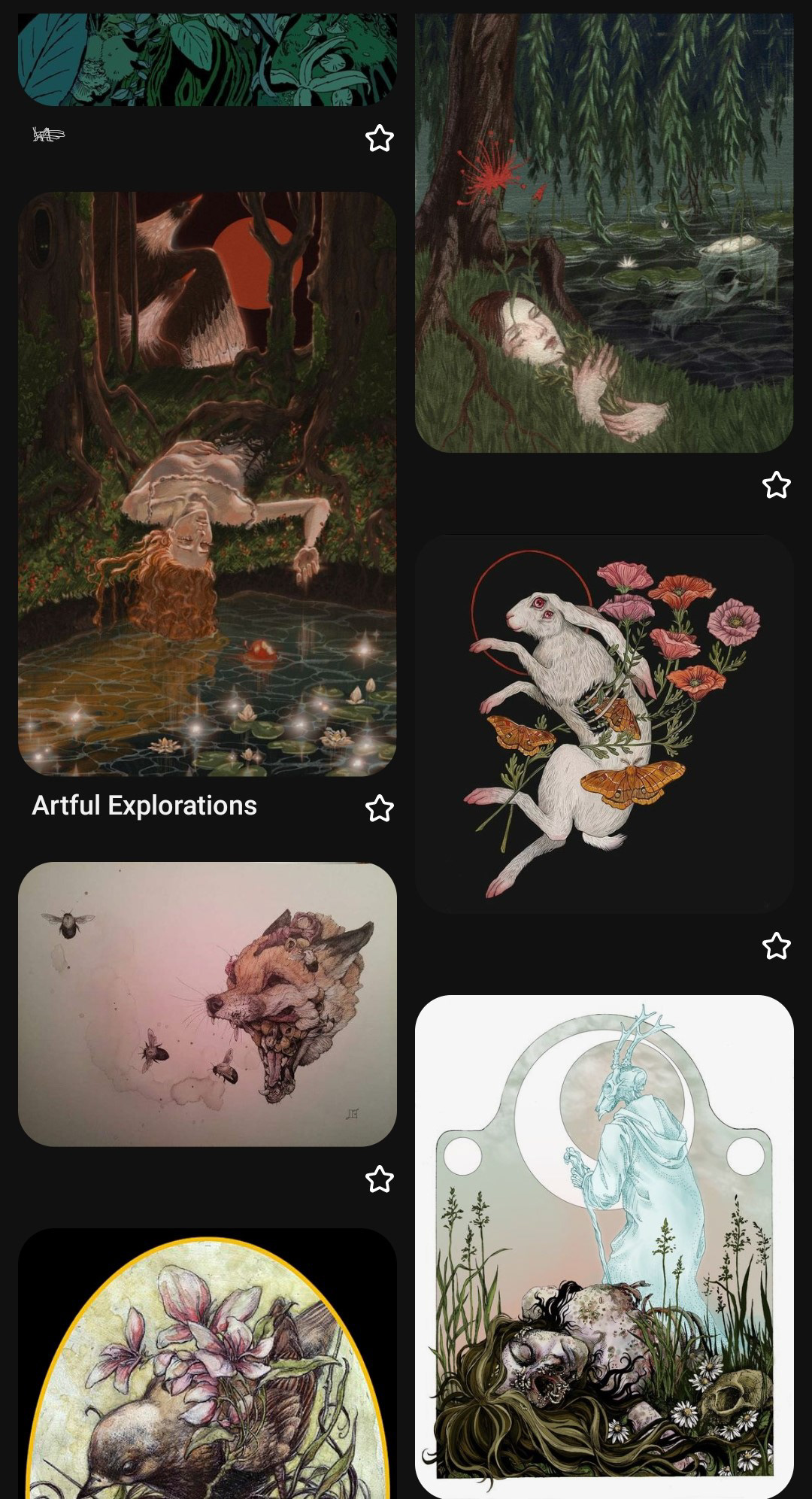
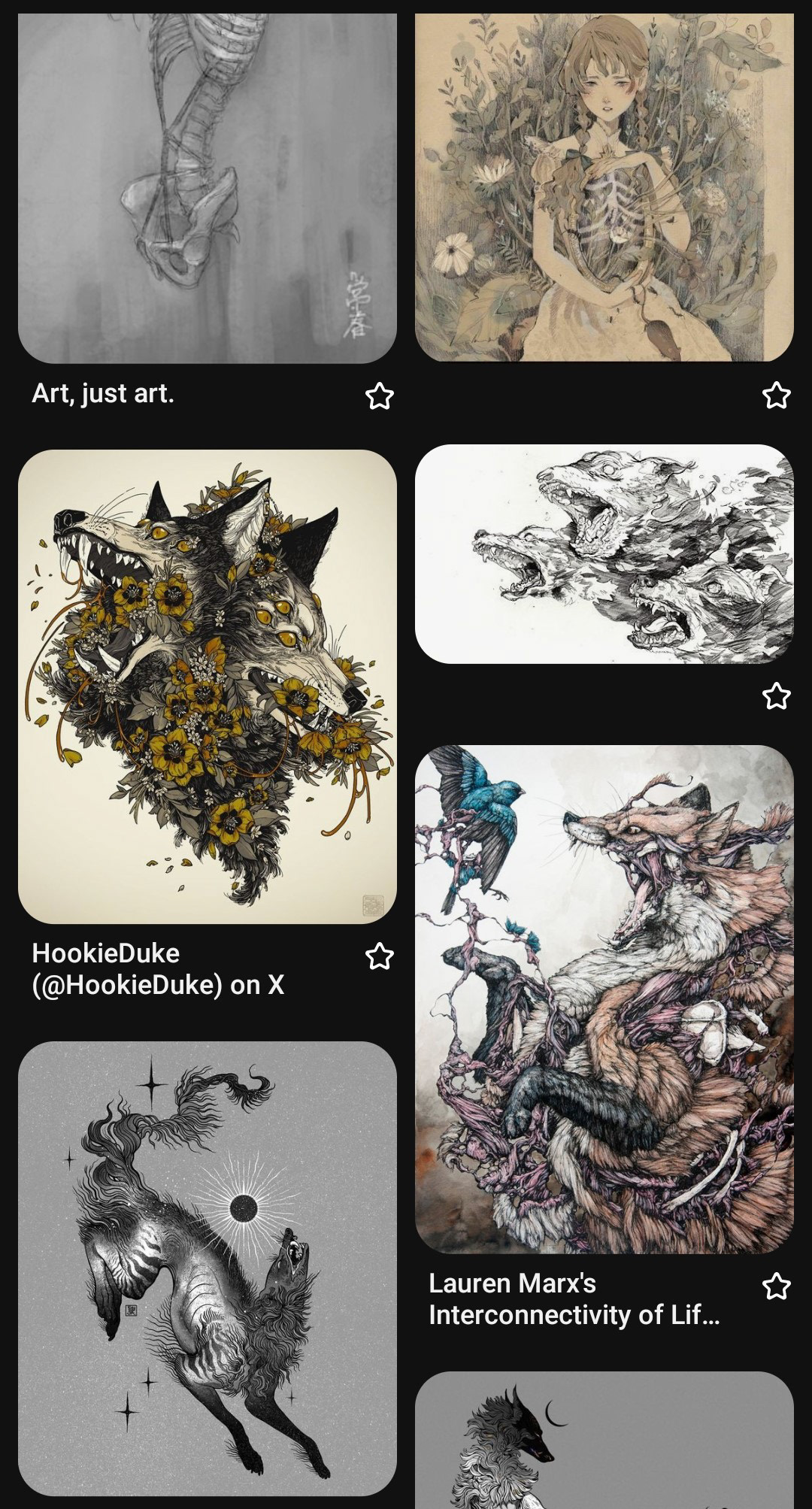
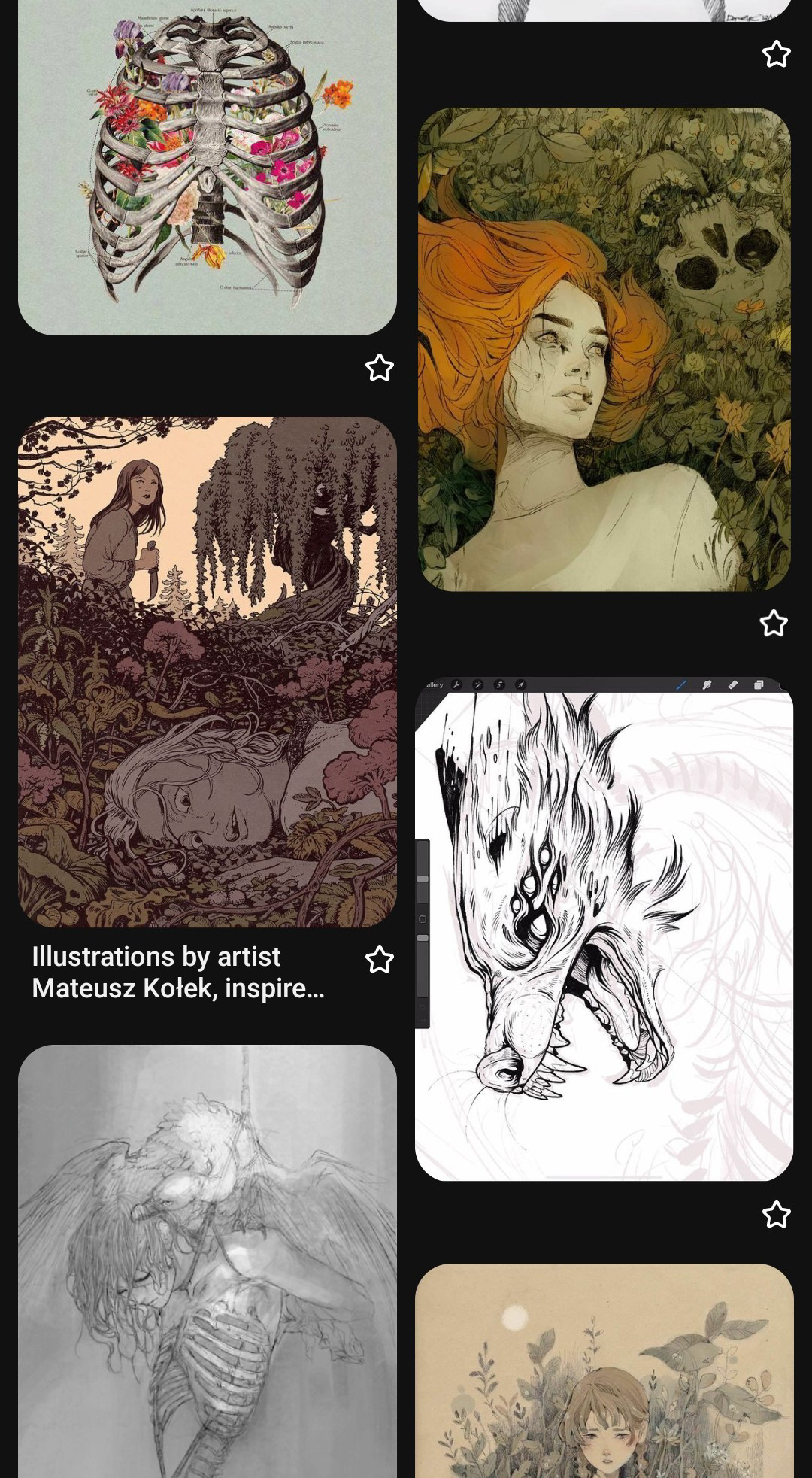
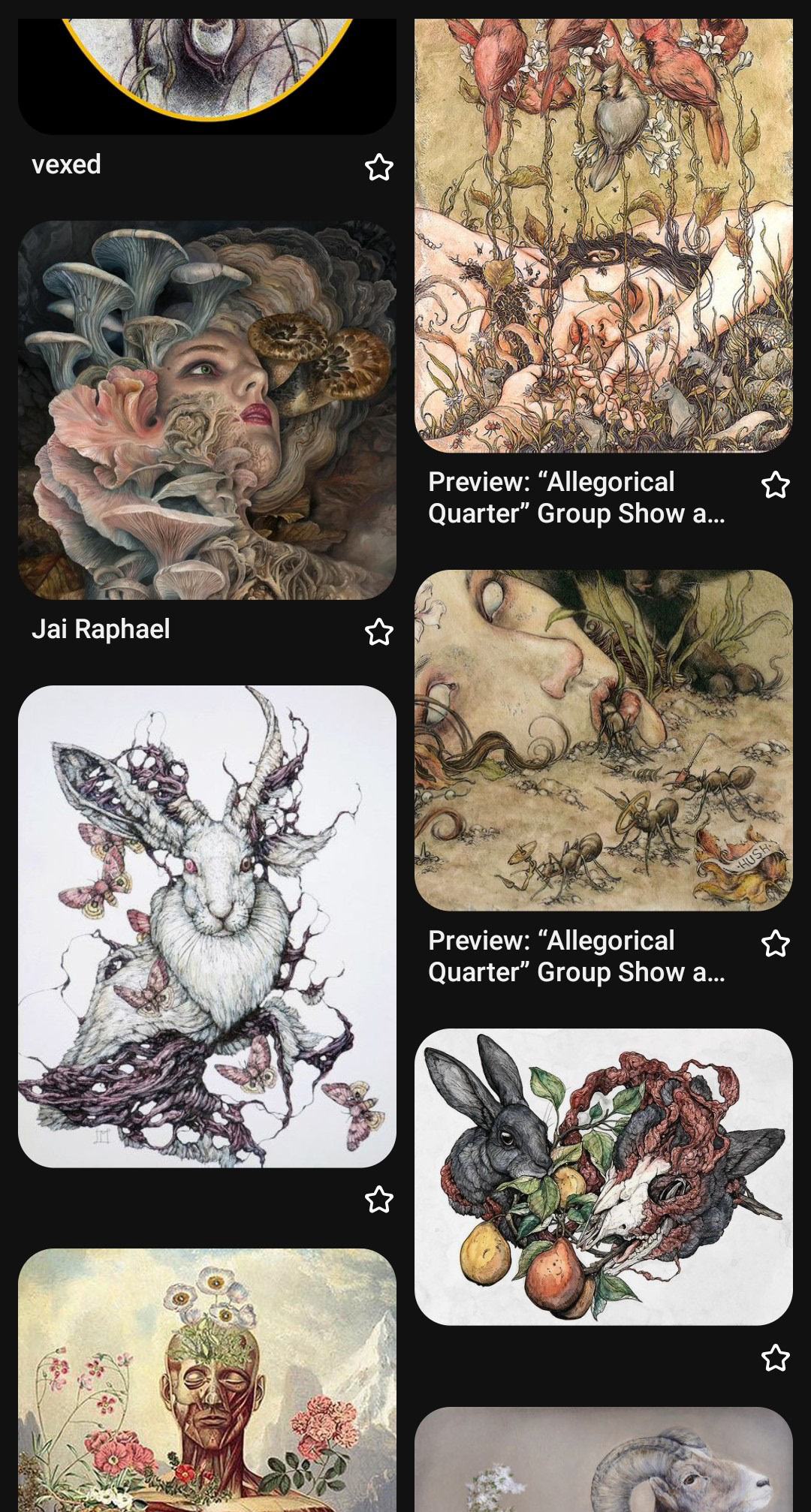
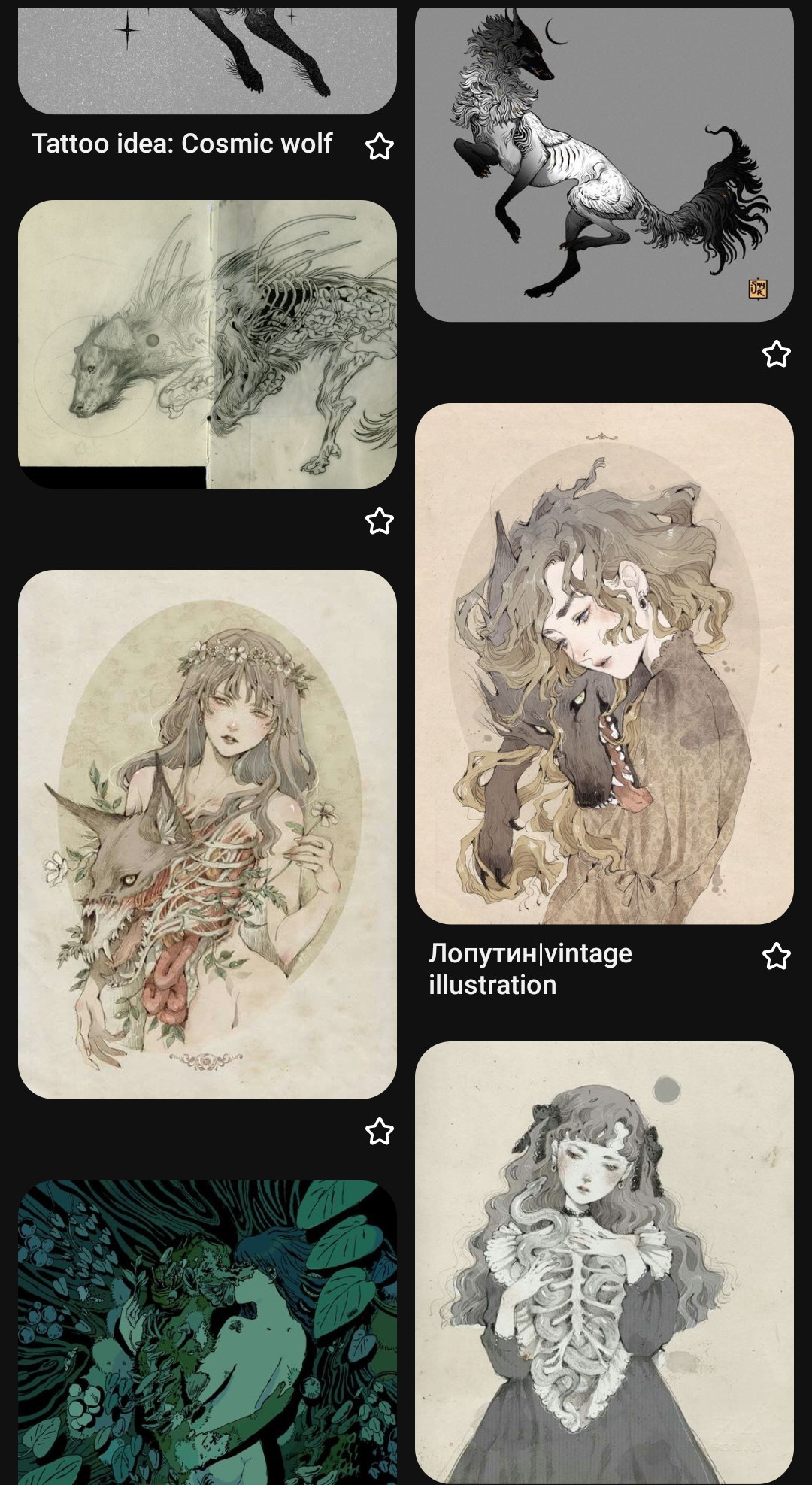
It seems like there's a constant internal conflict between my romantic ideals and the practicalities of my friendships. While I consider myself a romantic at heart, I often befriend individuals who are grappling with personal struggles and issues with self-identity. Unfortunately, their challenges sometimes make it difficult for them to express affection, despite their genuine intentions.
This leaves me with a dilemma: do I continue offering support, hoping they'll eventually overcome their difficulties and become better individuals, or do I step back and accept that my role isn't to act as their therapist? It's a question of balancing empathy with self-preservation, and finding the right answer isn't always straightforward.
Alternatively, perhaps I'm the one who puts myself in these predicaments. Why do I consistently seek affection from individuals I know struggle to offer it? Whether they're indifferent or their emotions tend toward the more volatile end of the spectrum, both scenarios leave me feeling uneasy. Could it be that I have an innate tendency to gravitate towards challenging situations? Maybe it's my selfish inclination to always seek out a challenge.
When confronted with this dilemma, I inevitably gravitate towards the romantic side. Despite acknowledging the practicalities and potential pitfalls, my heart yearns for the idealistic narrative, the belief that love and understanding can conquer all. It's as though I'm drawn to the allure of possibility, clinging to the hope that beneath the layers of struggle and complexity, there lies a path to genuine connection and mutual growth. While the realistic perspective urges caution and self-preservation, urging me to prioritize practicality and self-care, my romantic inclination persists, guiding me towards empathy, compassion, and the unwavering belief in the transformative power of love.
That decision typically leads to less favorable outcomes.
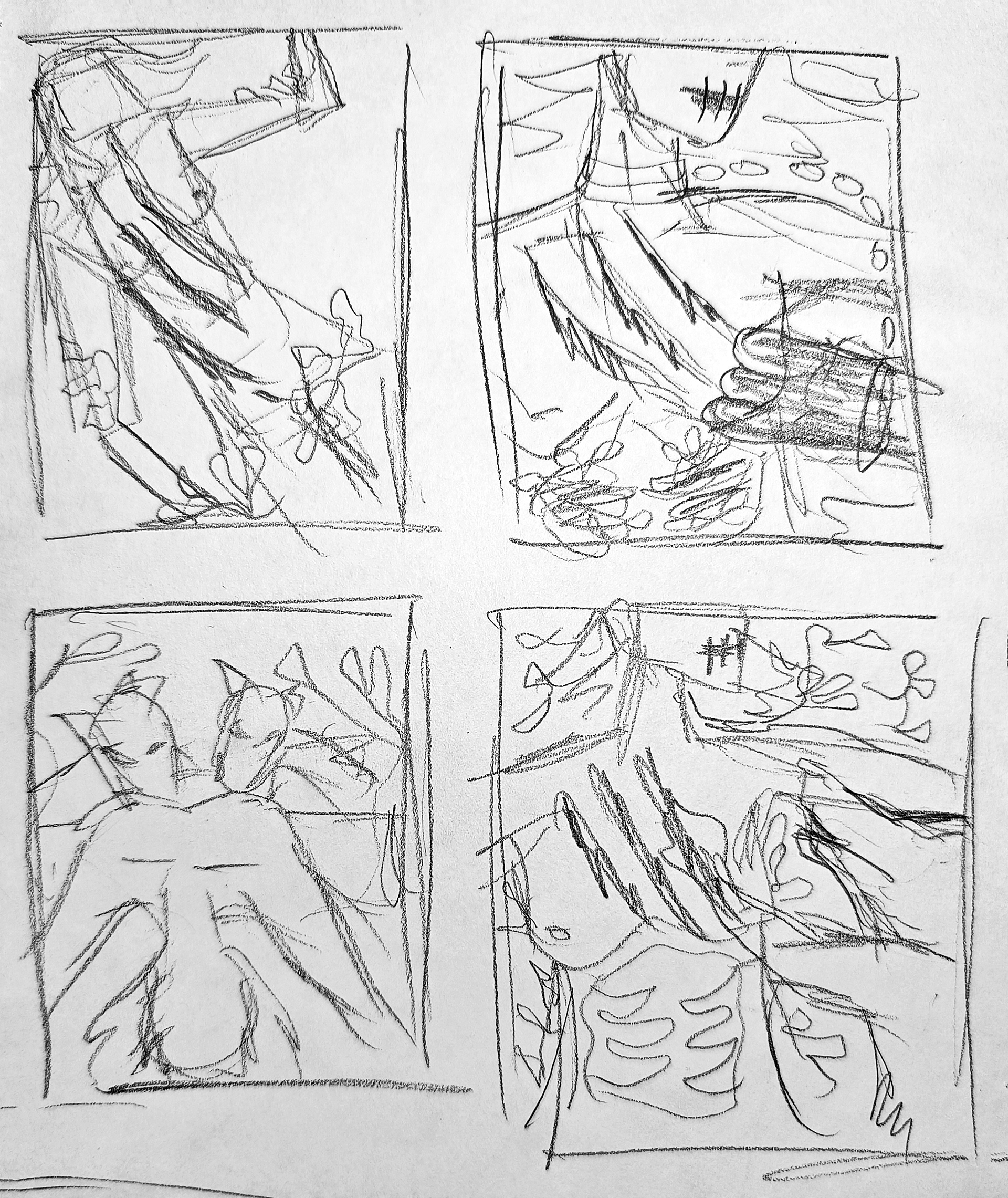
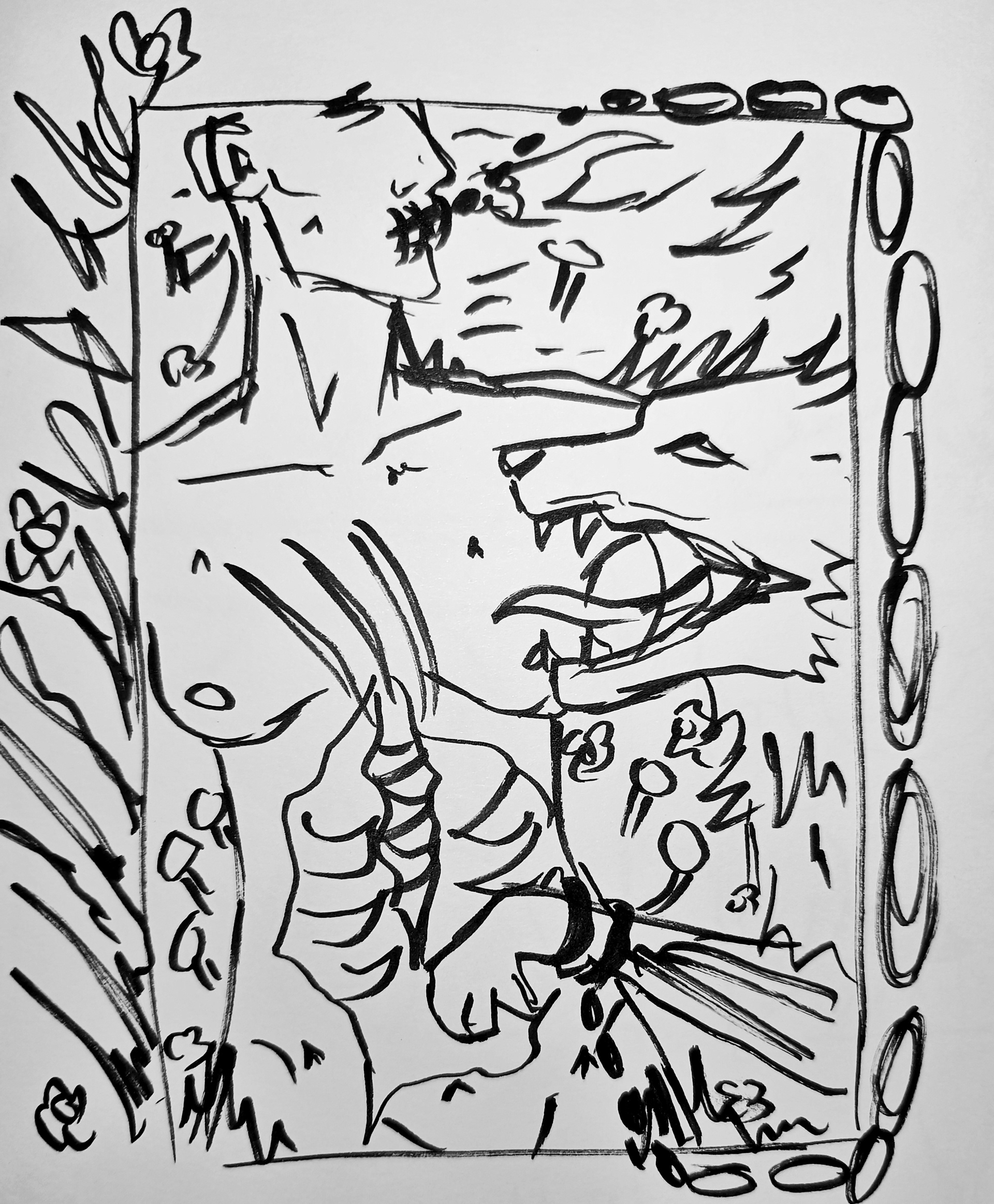
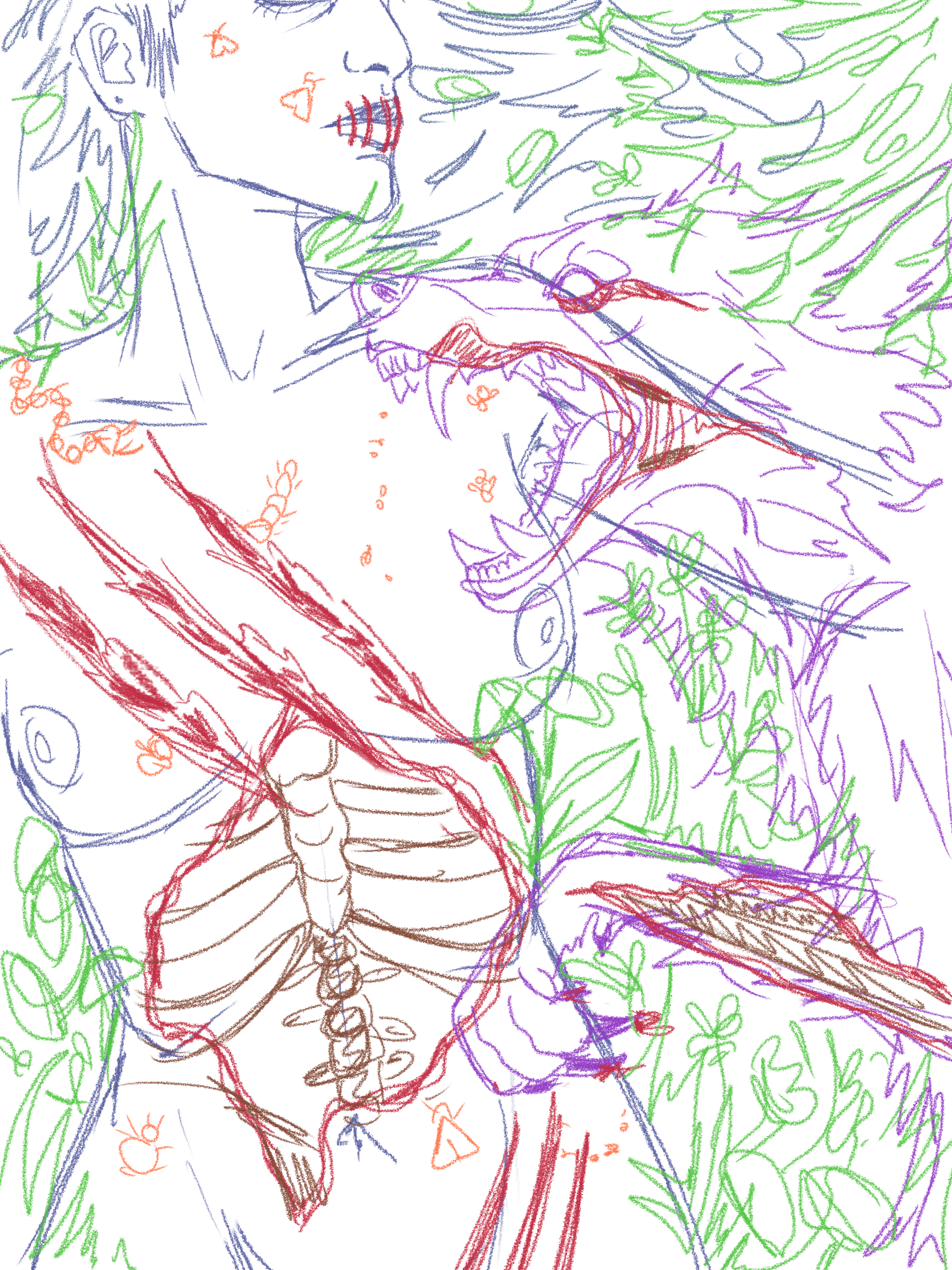
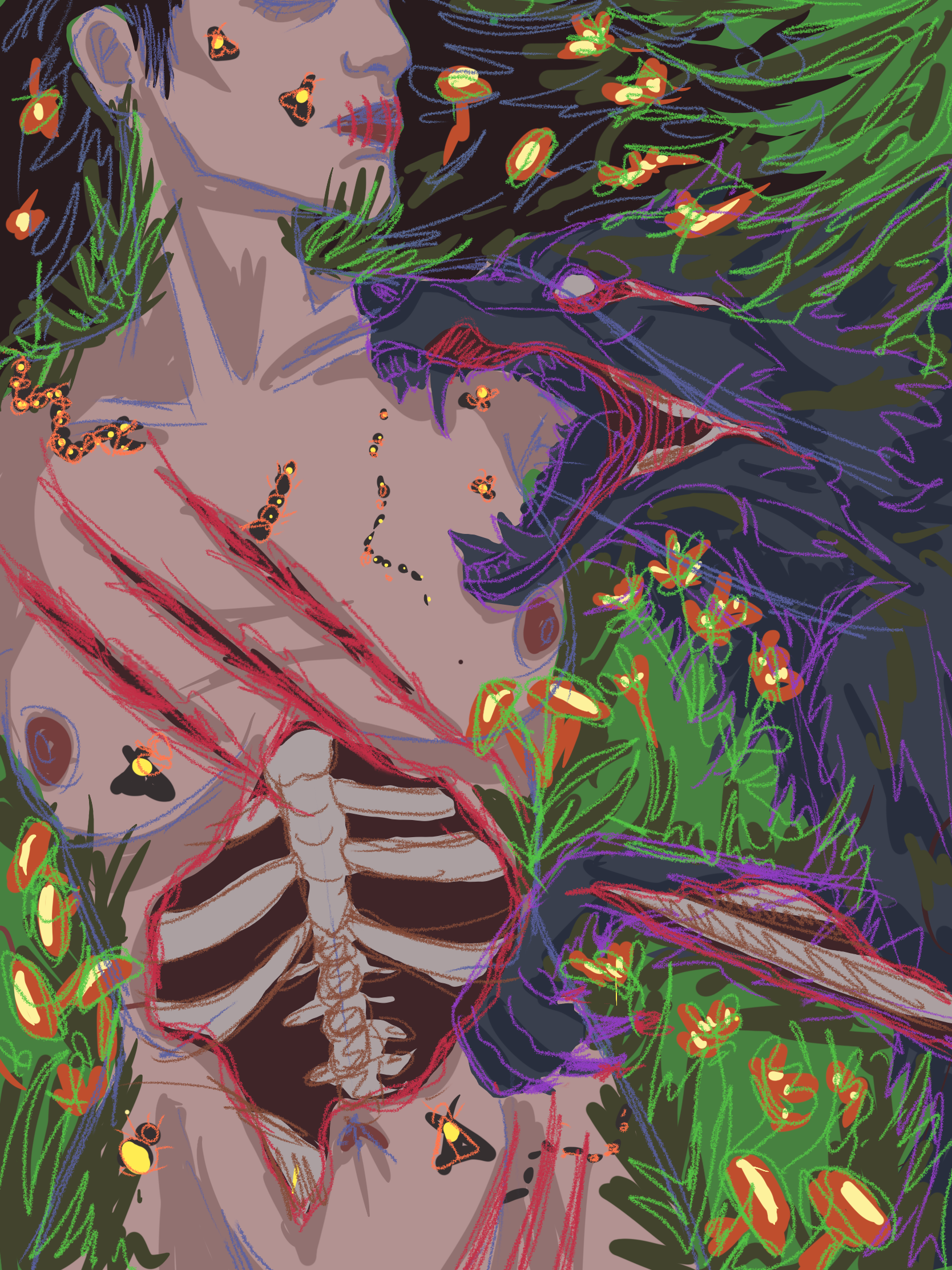
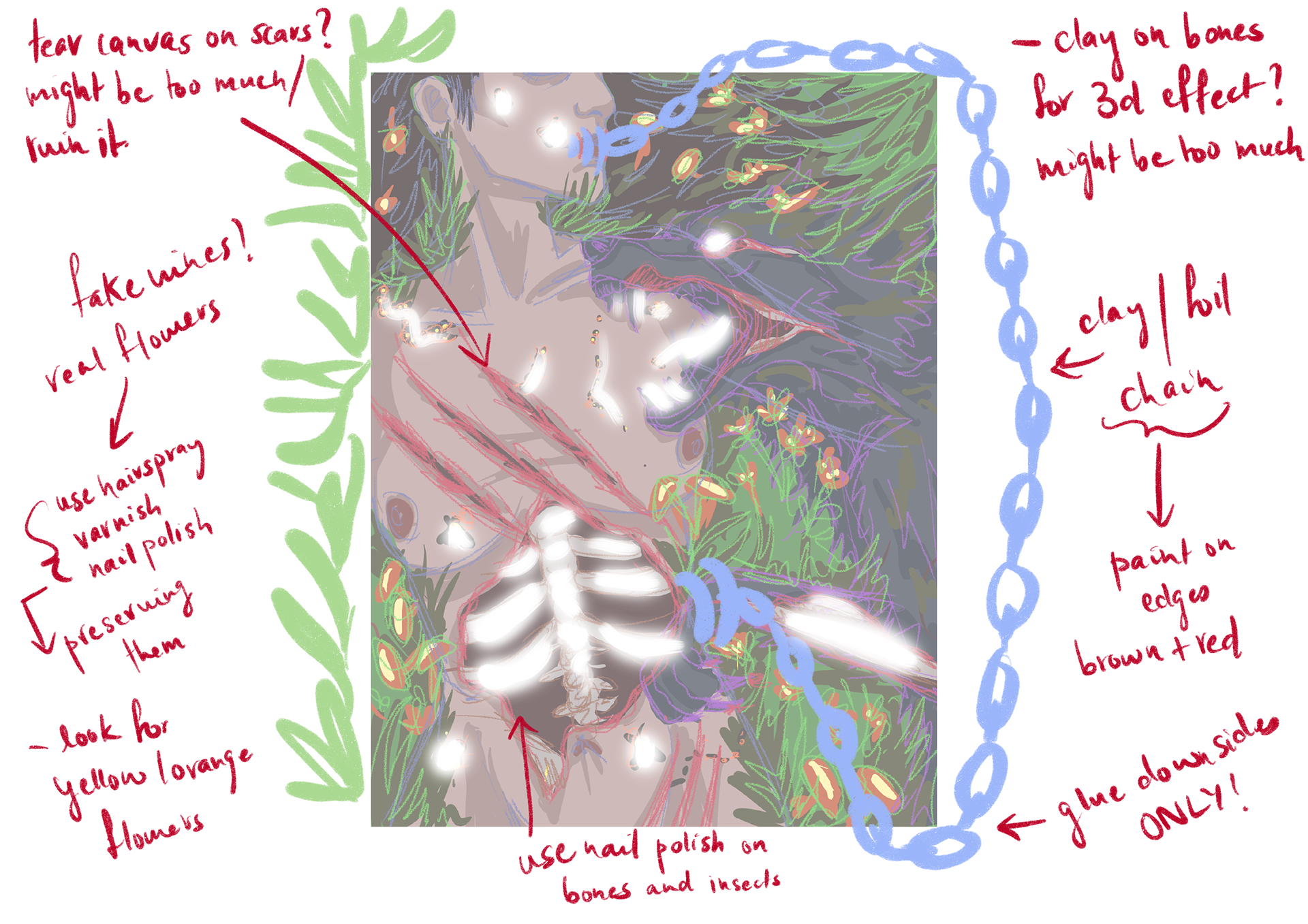
The Realist and the Romantic- Photography


Here's my final artwork for the brief. I'm really pleased with how it turned out. I don't usually delve into such personal feelings in my artwork, but seeing the success of this piece has inspired me to incorporate more of myself into future projects.
